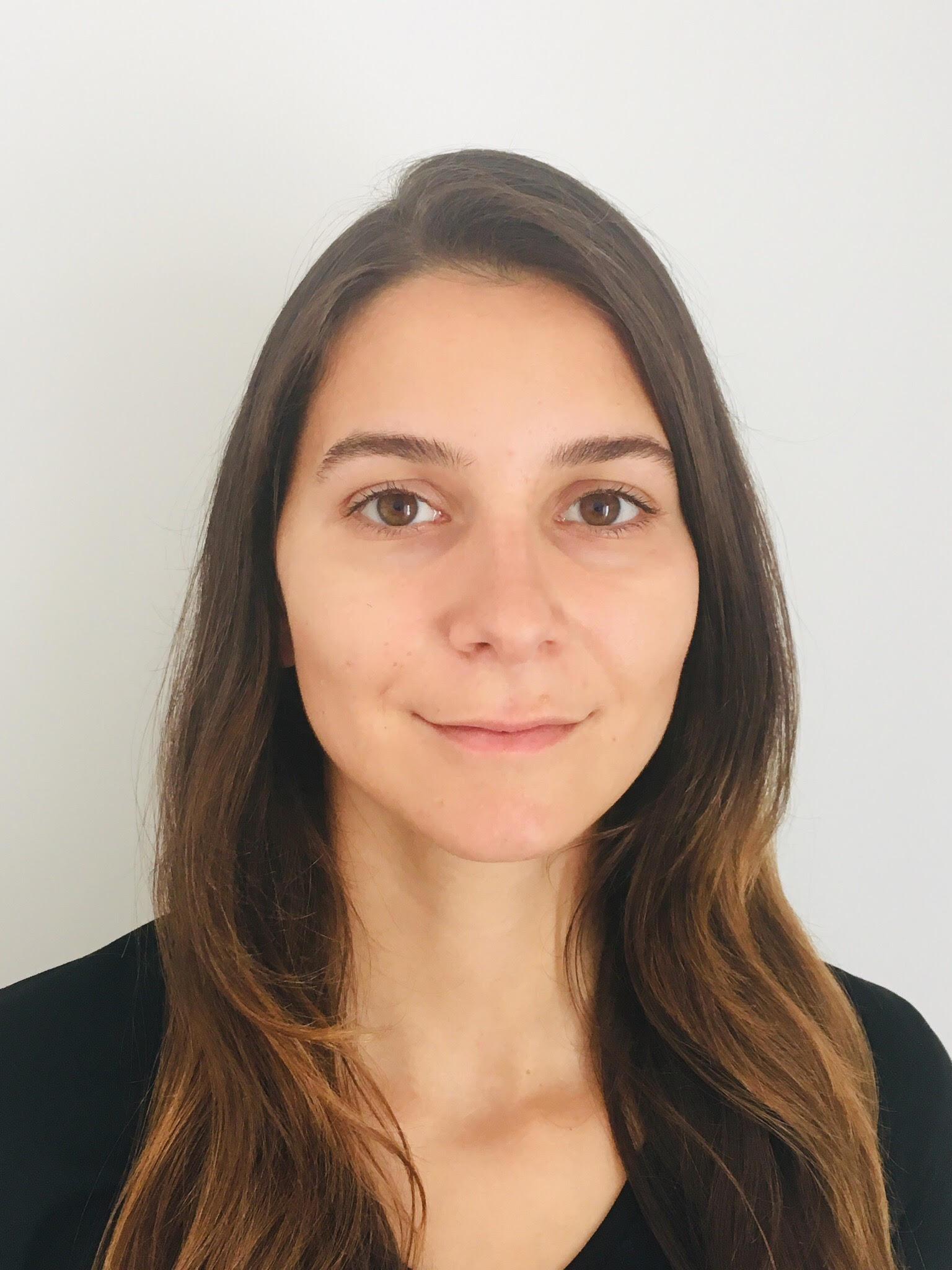
Alev Bilginsoy
Master’s Student
Alev is a Master’s student interested in climate change adaptation methods for urban watersheds and riverfront communities. Previously, Alev worked for Coastal Watershed Council in Santa Cruz, designing and coordinating water quality monitoring and pollution prevention programs that address regulatory requirements while engaging youth and adults in science education. She has a B.S. in City and Metropolitan Planning and B.S. in Environmental Studies from the University of Utah.
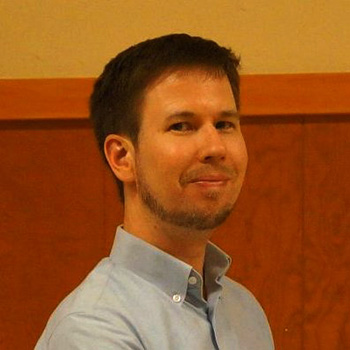
Alex Westhoff
Alex Westhoff, AICP, is a planner with the Marin County Community Development Agency focused on adaptation planning for communities vulnerable to sea level rise. With over thirteen years of experience in planning, monitoring and management activities for San Francisco Bay-Delta communities, his professional interests include placemaking, preservation, public participation, and climate resiliency. Holding a joint Master of City Planning/Master of Landscape Architecture from UC Berkeley, his Master’s Thesis proposed designating the Sacramento-San Joaquin Delta as California’s first National Heritage Area which led to enabling congressional legislation, still pending. Prior to working for Marin County, he spent seven years with the Delta Protection Commission, focused on establishment of the Heritage Area and other projects to enhance the region’s sense of place.

Allison Zau
Alumni
Allison Zau (they/them) is currently pursuing a Masters at Columbia University in Earth and Environmental Engineering. At Berkeley, they studied geophysics in the Department of Earth and Planetary Science. During this time, they assisted Jennifer Natali’s research into riparian meadows in the Northeast Sierra Nevada. Utilizing seismic and electrical resistivity surveys, they hoped to identify geologic structures and evidence of historic geomorphic events that shape groundwater aquifers. These shallow aquifers are a critical control on the type of vegetation cover, especially in light of rapid climate change.
Contact email: zaua AT berkeley.edu
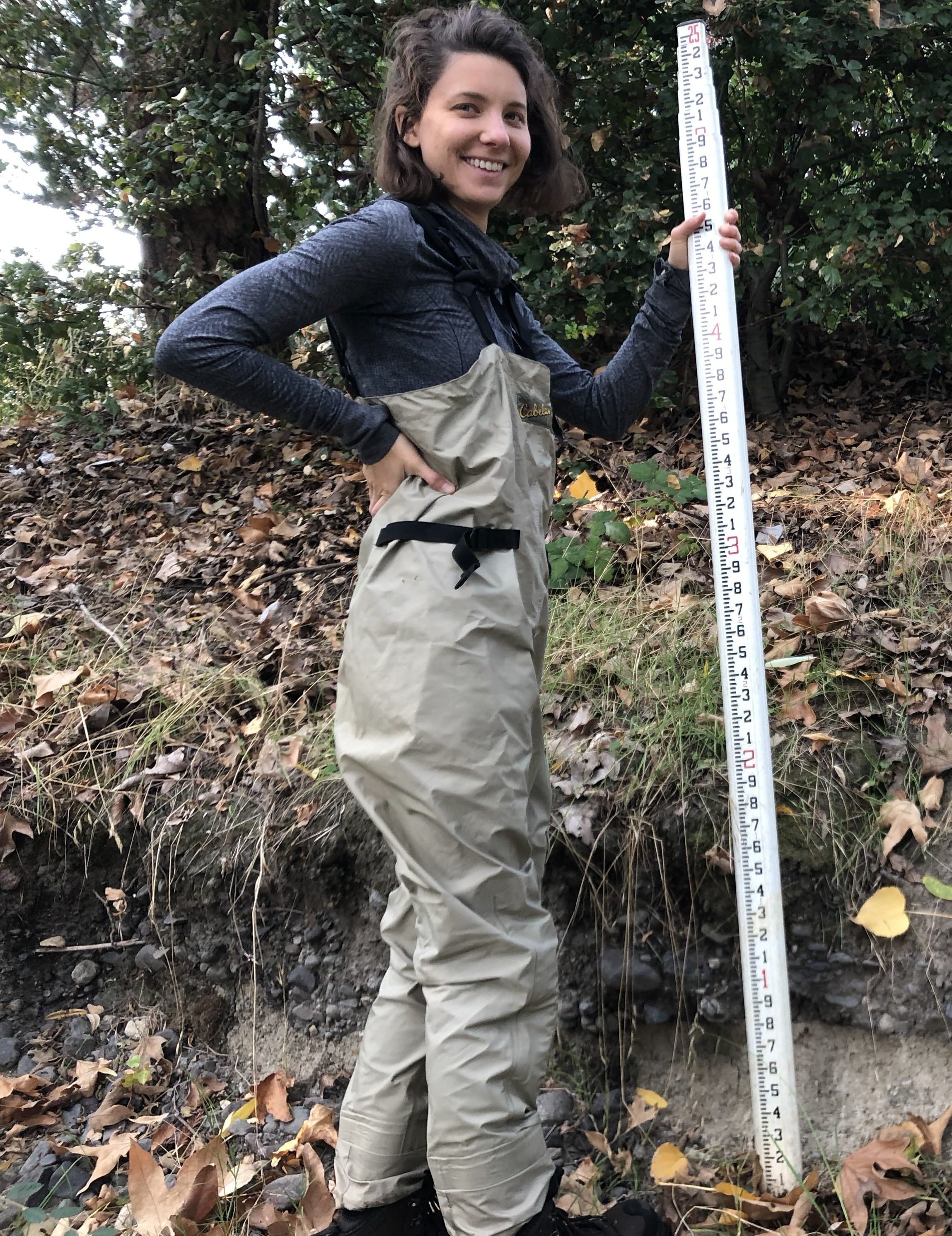
Anneliese Sytsma
Ph.D. Candidate
Anneliese’s research investigates patterns of altered hydrologic pathways across developed landscapes, and explores planning, policy, and design strategies to minimize the negative ecological impacts of these alterations. Through collaboration with a range of municipalities from different geographic and political settings, she seeks to understand and develop solutions for natural and institutional barriers to restoring watershed functions in human altered environments. Anneliese received an M.Sc. in environmental engineering from UC Berkeley in 2017 and a B.Sc. in civil/environmental engineering from Seattle University in 2012. Between degrees, she worked as a water resources engineer for an environmental consulting firm in Seattle.
Contact email: anneliese_sytsma AT berkeley.edu
Website: anneliesesytsma.wordpress.com

Ari Frink
Ari has years of experience working for environmental non-profits, water and wastewater utilities. He worked on Lake Merced outreach and research with the SFPUC before moving to engaging the public and soliciting their feedback for green infrastructure and flood management with the wastewater department of the SFPUC.
During his time at Cal, Ari researched opportunities for implementing the 50 Year Plan with Contra Costa County, using GIS and developing models to determine the best locations to restore creeks throughout the Walnut Creek watershed.

Arielle “Ari” Simmons-Steffen
Ari currently works as a GIS Data Engineer at Tableau Software in Seattle, WA. Her day-to-day work builds from the GIS and visualization skills that she honed while a student in LAEP. Her interest in furthering the technology that supports sound environmental decision making was highlighted in her master’s thesis work where she used a variety of remote sensing techniques to track the spectral signature of the Mediterranean invasive: Arundo donax.
Overall, Ari is passionate about open source GIS data and open source technology. She publicly shares code through her personal github repo and is an active member in her local open-source GIS community. Even though she is fluent in the ESRI ArcGIS suite, much of her recent work focuses on building GIS workflows and products that utilize open source tools and standards.
Outside of work, she enjoys getting outside and exploring the beautiful Pacific Northwest with her husband (another Berkeley alum from Computational Biology). Together, they take some pretty legendary fishing trips: such as my 2014 Boundary Waters vacation. Also, she is always experimenting with low-cost remote sensing techniques using kites and drones.
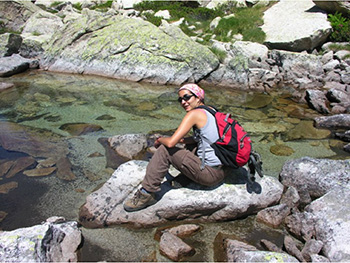
Blanca Rios Touma
Blanca’s research has focused on the effects of natural and human disturbance on benthic communities. She studied biology in Ecuador and started her journey studying rivers with Dr. Dean Jacobsen studying macroinvertebrates from Andean streams, especially aquatic snails. She attended Universitat de Barcelona for her graduate studies, where she was involved on several projects of ecological quality of Mediterranean streams and the implementation of the European Water Framework Directive (WFD).
Her MSc Thesis focused on the ecological quality on Andean streams, applying the same principles from the WFD. For her PhD thesis she studied the effect of natural and anthropogenic flow fluctuations on the macroinvertebrate community of a high altitude Andean Stream.
Since 2009 Blanca has been working on the land use effects on the ecological status of Andean Rivers and the natural history of Andean aquatic macroinvertebrates, especially caddisflies. From 2012 to 2013 she was a Postdoctoral Researcher with Prof. Kondolf, at U. C. Berkeley, studying the effectiveness, from the ecological perspective, of river restoration and its monitoring. This research focused on the city of Portland, OR and the lower Colorado River in AZ, two contrasting examples of restoration approaches and monitoring in highly modified catchments. Currently she is a Professor in Ecuador at Universidad de las Américas, and her research focuses on multiple stressors in rivers and freshwater biodiversity.
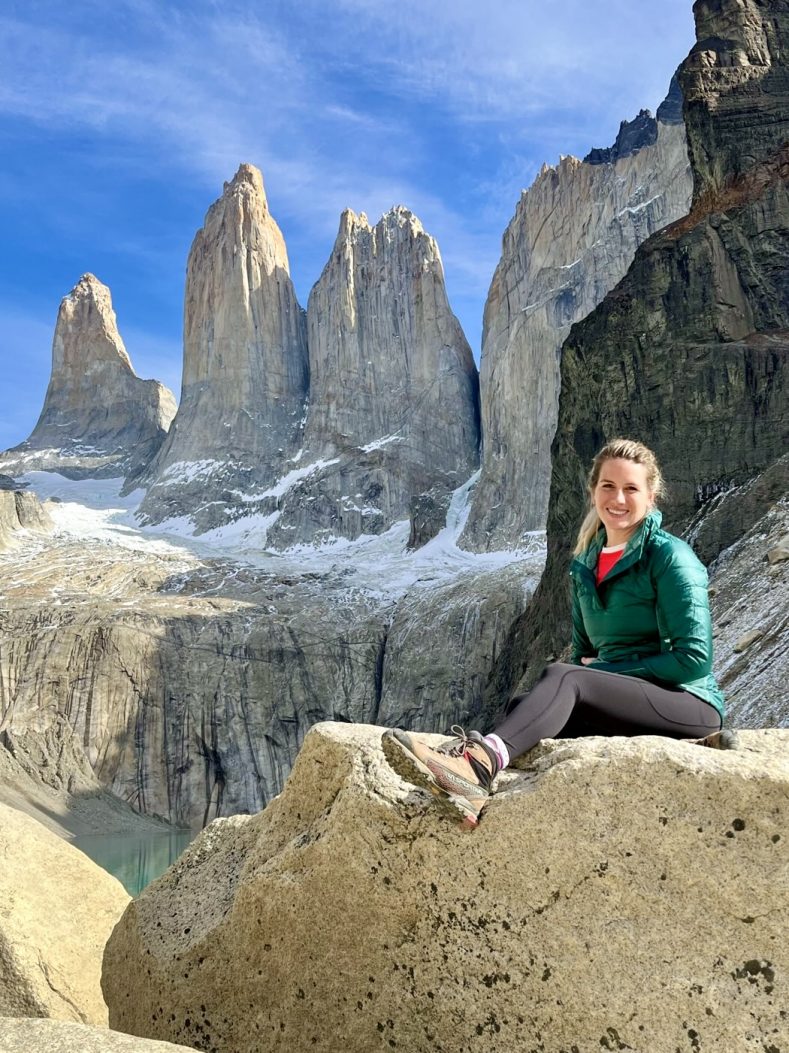
Britne Clifton
Britne’s research encompasses various earth sciences including systems ecology, river sciences, natural resource management, ecosystem restoration, climate change, and the use of interdisciplinary research to answer complex questions. Her current research primarily investigates the various outcomes of restoration approaches applied along the largest river west of the Sierra Nevada without a major dam project and quantifying those outcomes into ecosystem services. Britne’s PhD work also includes evaluating policies around the world that influence (positively or negatively) deltaic and upstream efforts to mitigate climate change and the impacts of anthropogenic alterations. She is currently a PhD candidate in the Environmental Systems Graduate Group at the University of California – Merced and part of Professor Joshua H. Viers’s VICElab. Previously, she worked as a researcher in a variety of projects ranging from LEED certification and food security to GIS & Remote Sensing services and ecosystem modeling. Beth’s past experience included an assortment of professional settings such as Oak Ridge National Laboratory, NASA’s Marshall Space Flight Center, Universidad de Concepción, and the Political Science and Earth System Science Departments at the University of Alabama in Huntsville. She earned a Masters in Earth System Sciences from the University of Alabama in Huntsville in 2016 and has a Bachelors in Biology from Athens State University.
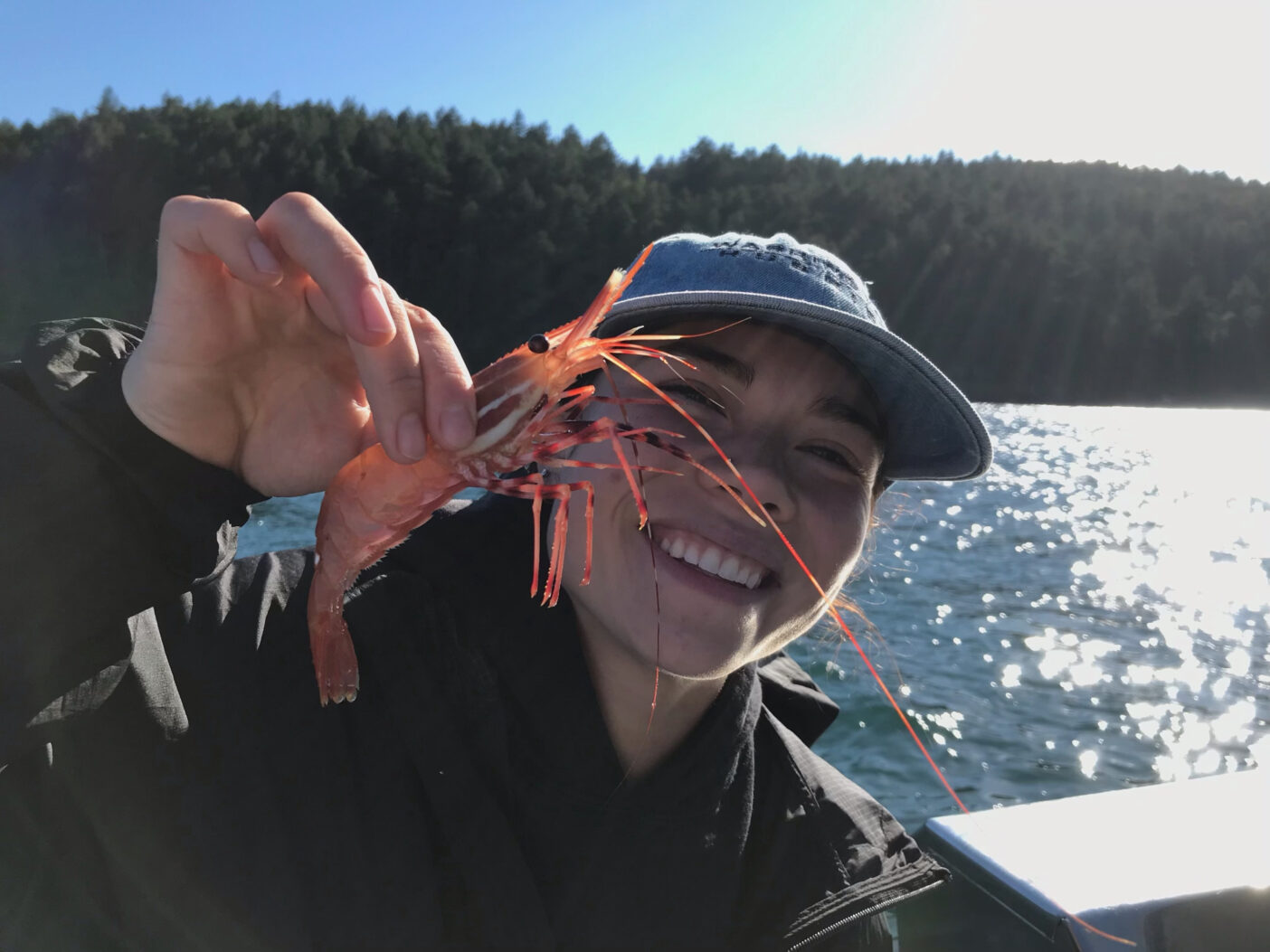
Casey Jones
Casey is a recent graduate from UC Berkeley’s Landscape Architecture and Environmental Planning masters program, with an emphasis on coastal planning and transitions from grey infrastructure to hybrid coastal protection strategies. Her research focused on sediment dynamics in disrupted hydrologic systems and wetland restoration. She is currently researching the impacts of process-based marsh restoration in Coastal Louisiana and the socioeconomic outcomes of current coastal resiliency planning. Casey is an advocate for interdisciplinary education and accessible scientific communication to the broader public. Before starting graduate school at UC Berkeley, she earned a B.S. in Environmental Science and Resource Management from the University of Washington, where she specialized in invasion ecology and sustainable horticulture.
Contact Casey: joneslara17 [at] gmail.com

Celina Balderas Guzman
Ph.D. Candidate
Celina is an Assistant Professor in the Department of Landscape Architecture at the University of Washington. Her dissertation research focused on coastal wetland resiliency to sea level rise and stormwater quality using ecological modeling, geospatial, and data science methods. Her current work focuses on coasts under climate change. She studies coastal nature-based solutions, the human impacts of wetland migration, and the emergence of maladaptation in collaboration with scientists from the physical and social sciences. In addition to her UC Berkeley PhD, she has three degrees from MIT in architecture, urban planning, and urbanism.
Contact email: celinabg AT uw.edu
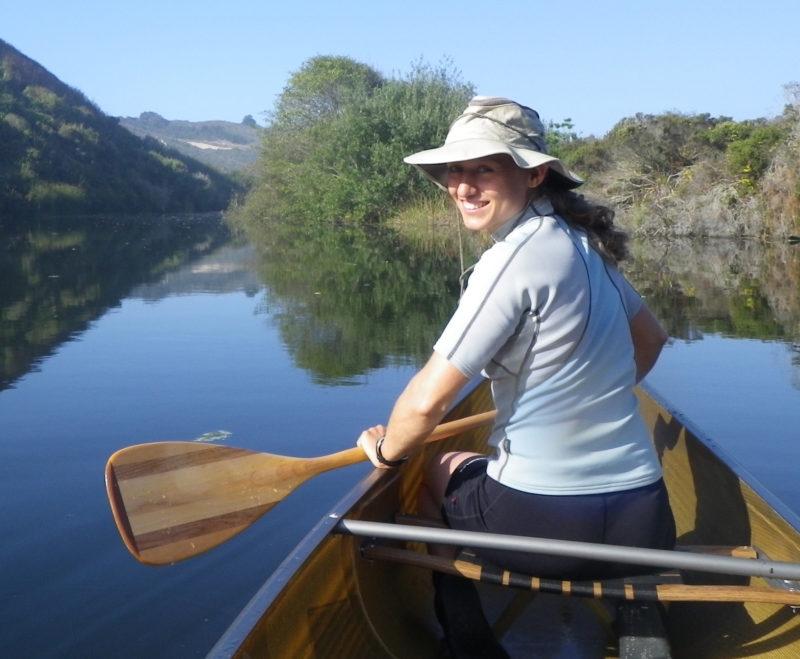
Chris Alford
While at UC Berkeley, Chris studied water resources management, fluvial geomorphology, and water law. Her Master’s Thesis focused on the physical and institutional challenges of managing surface water flows for both human and environmental uses in California’s central coast watersheds.
As the Principal of Alford Environmental, Chris provides technical support and capacity building assistance to water management entities, watershed groups, land use planning agencies, and conservation organizations in California. Her areas of specialty include regional-scale natural resources planning, water supply management, and water rights. Previously, Chris led American Rivers’ instream flow and water supply protection efforts in California as the California Instream Flow and Water Supply Program Director.
Chris currently serves on the board of directors of the Sierra Streams Institute.
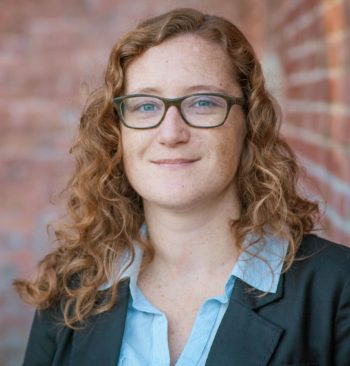
Clare Waldmann
Clare Waldmann currently works as a Consultant for s.Pro – sustainable projects GmbH, a sustainable development and project management consultancy based in Berlin, Germany. She is responsible for sharing knowledge and experiences relevant for implementation of the EU Directive on Maritime Spatial Planning (2014/89/EU) with EU Member States. Additionally, she develops proposals and coordinates consortia for regional development and environmental management projects in the North Sea and Baltic Sea regions. Prior to joining s.Pro, Clare consulted German institutions on coastal and marine policy and climate adaptation as a Robert Bosch Foundation Fellow with the Blue Solutions Initiative at the Deutsche Gesellschaft für Internationale Zusammenarbeit (GIZ) GmbH, and Ecologic Institute. Clare previously worked as a Project Manager for the California Ocean Protection Council, Researcher for the Clearinghouse for Dam Removal Information, and Research Specialist and Instructor at UC Berkeley.
As a graduate student, Clare’s research focused on river restoration in coastal watersheds, and her masters thesis analyzed dam removal planning in the California Coast Ranges. She worked as a Graduate Student Instructor for ES10: Introduction to Environmental Science and a Graduate Student Researcher with responsibilities including curriculum development, field data collection and conducting a literature review of trends in applied fluvial geomorphology methods.
Publications:
Germany’s Interests in Coastal and Marine Conservation
The Big Five: Dam Removal Planning in the California Coast Ranges
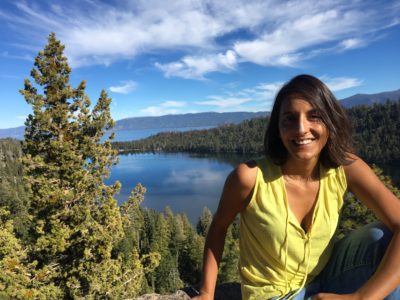
Daniela Pina Corvillon
Daniela focuses on Design and Restoration of Natural Ecological Functions at the interface of human and wild space. Daniela works at John Northmore Roberts & Associates in Berkeley, CA, where they plan, design, & manage various-scale projects that integrate human uses into natural areas, and restore natural functions on urban environment. At John Northmore Roberts and Associates, Daniela works primary with the National Park Service; with committed NGOS that support conservation of natural areas; cities that integrate ecology into urban space; and private clients that envision the integration of wild habitat and ecological design into their gardens.
At the same time, Daniela has pursued an international volunteer career in Chile and Cuba, where she provides integrated solutions to environmental and social problems in marginal high-need areas. With continues support of UC Berkeley, Matt Kondolf and local NGOs, she has been persuade a River Restoration Project in Palma Soriano, Cuba. Moreover Daniela and Matt can be found collaborating with different local partners in Chile, from the public and private agencies to local academic institutions, to address the complex problems associates with separating natural hydrologic process from the patterns of human settlement. The ecologically-based solutions being proposed focus on restoration and nourishing of the native landscape.
The integration of a social and art perspective that Daniela brings into the environmental discussion enriches the resolution of conflict between human and wild environments. Her passion and commitment to natural hydrologic cycles challenge her to find creative ways to bring sensitive design solutions to the environmental crisis and our infrastructure challenges.
Contact Email: www.dcorvillon.com

Ellie Reiff
Alumni
Ellie Reiff (she/they) is a recent graduate from UC Berkeley’s undergraduate Landscape Architecture program. Born and raised in San Francisco, Ellie has a deep appreciation for native California flora and fauna. Their interest in rivers and wetlands was formalized while taking LDARCH 227: Restoration of Rivers and Streams, and they are currently a Junior Lecturer for LDARCH 12: Environmental Science for Sustainable Development at UC Berkeley.
Contact email: elliereiff AT berkeley.edu
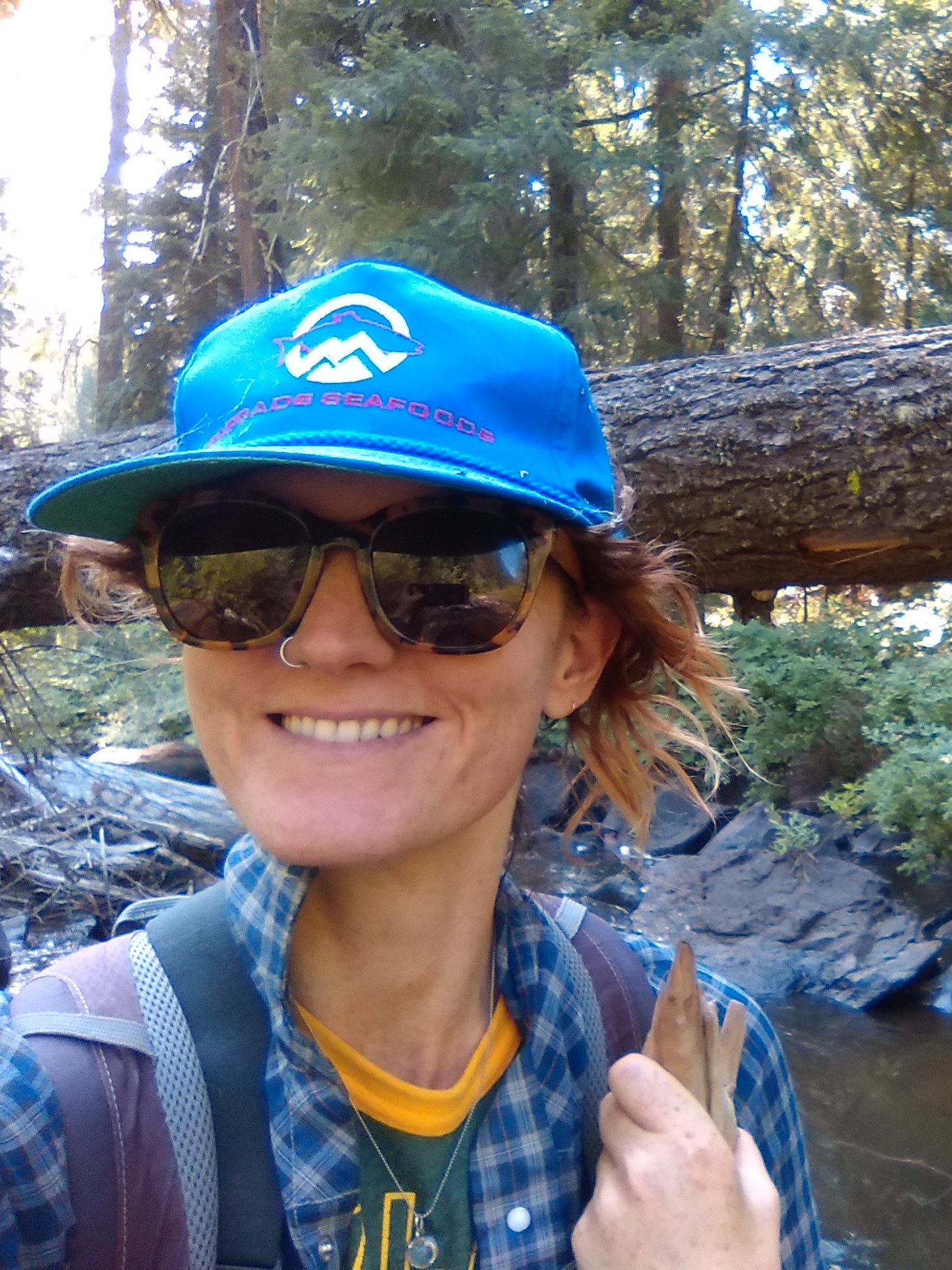
Erin (Kim) Deniz
Erin received their masters degree in Landscape Architecture and Environmental Planning at UC Berkeley. Her focus lies in ecological restoration, specifically, the intersection of fisheries, river restoration, and environmental problem solving. From salmon runs to thorough analysis of large or small alterations to a river, these “interstitial spaces” are the complex interconnections of land, water, humans, and fish, which Erin is seeking to integrate and facilitate through restoration. Erin graduated from Humboldt State University with a degree in environmental science and an emphasis in geospatial analysis. Since then, Kim has been in the field above and below the Klamath River dams, conducting salmon spawning ground surveys in the mid-Klamath basin as well as assessed habitat and identified restoration projects in the tributaries of the Klamath River from Iron Gate Reservoir to Klamath Lake. Erin now works as a habitat restoration program manager for Salmon River Restoration.
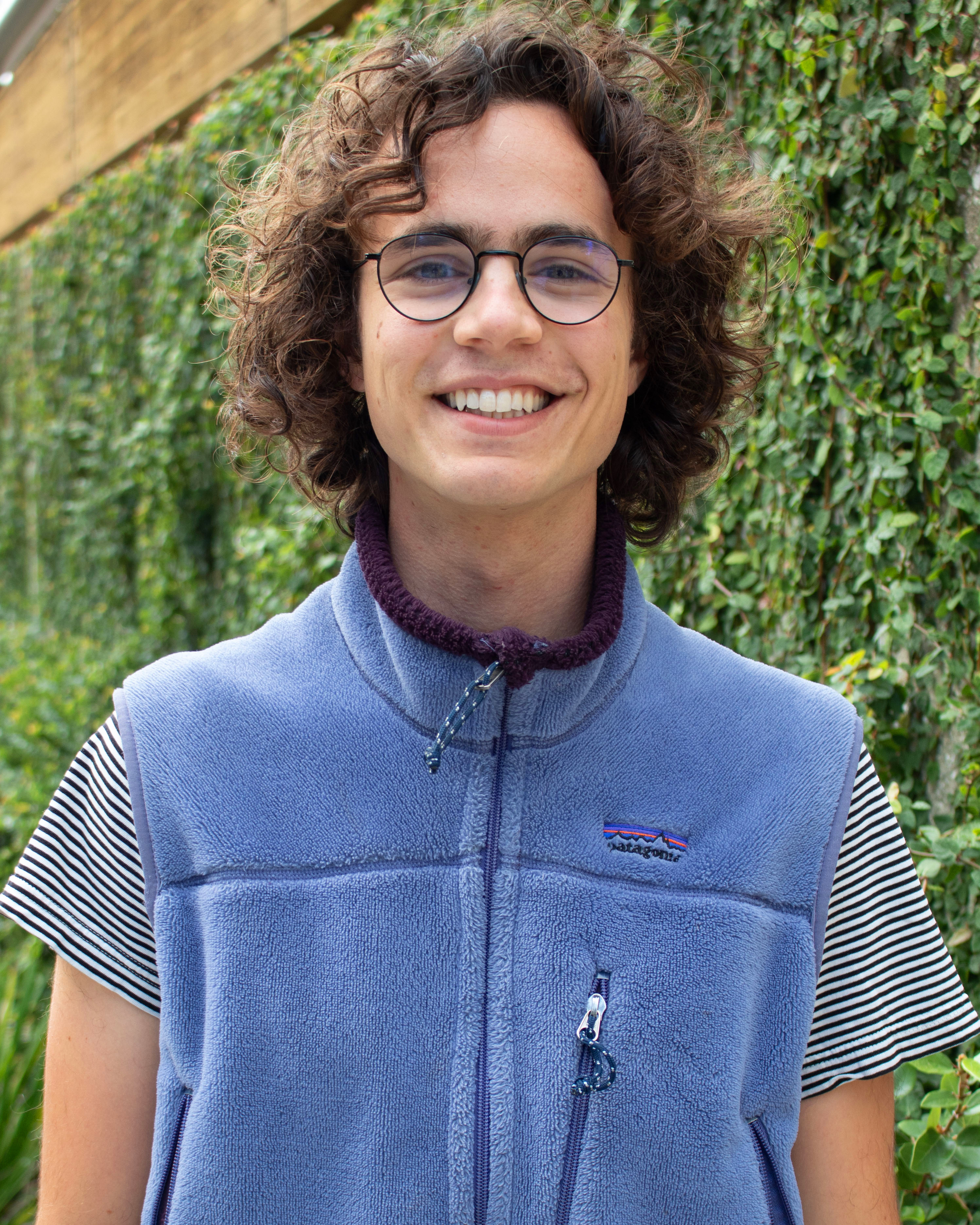
Eytan Stanton
Eytan Stanton (he/him) is a recent graduate from Landscape Architecture at UC Berkeley. Prior to university, he apprenticed at various regenerative farms and ecological design institutes, worked conservation gigs, and helped organize a community garden and food justice network in his neighborhood during the pandemic. Inspired by the ecological and community building impacts of his 2023-2024 restoration effort in the North Fork of Strawberry Creek, he is currently working for the Berkeley Student Cooperatives supporting other gardeners in achieving their food sovereignty and native habitat revitalization goals. As a Geraldine Knight Scott Travel Fellow, he is researching the intersection of urban riparian ecologies, activism, and participatory design.

Faisal Ashraf
Visiting Ph.D. Student
Faisal’s Research involves quantifying the impacts of changing climate and hydropower reservoir operations on river regimes. Specifically, he is analysing the impacts of increasing penetration of renewables (wind, solar, etc.) on sub-daily flow conditions of the major regulated rivers in the Nordic region. Faisal’s PhD project also includes hydraulic and fish habitat modelling for optimization of hydropower reservoir operations. He is also working with natural resources institute of Finland (LUKE) and Finnish Environmental institute (SYKE) on other research projects related to management of hydropower regulated watershed in Finland. He is Currently a PhD candidate at Water, Energy and Environmental Engineering Research Unit, University of Oulu, Finland. Faisal received his B.E in Civil Engineering from University of Kashmir, India and M.S. in Environmental Engineering from University of Oulu, Finland.
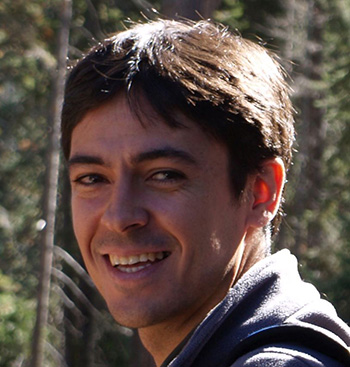
Fernando Magdaleno
Fernando coordinates the Environmental Restoration Dep. in the Spanish Centre for Studies and Experimentation of Public Works (CEDEX), and also serves as an assistant professor in the Civil Engineering College of Madrid´s Technical University. He visited Berkeley as a Fulbright post-doc scholar, focusing on the following topics: “Hydromorphology of degraded channels and floodplains, analyzing Russian River system and its main tributaries. River restoration, from early design to monitoring. Flood risk managerial alternatives in urban environments, particularly flood bypasses and other related tools”.
His main areas of interest and research are the in restoration of alteredriver systems, the analysis of ecohydrological patterns and requirements of Med. rivers, and the development of hydromorphological procedures for the management of different river typologies. During the last decade, Fernando has been involved in a wide range of national and international projects targeted to the hydromorphological improvement of rivers and wetlands.
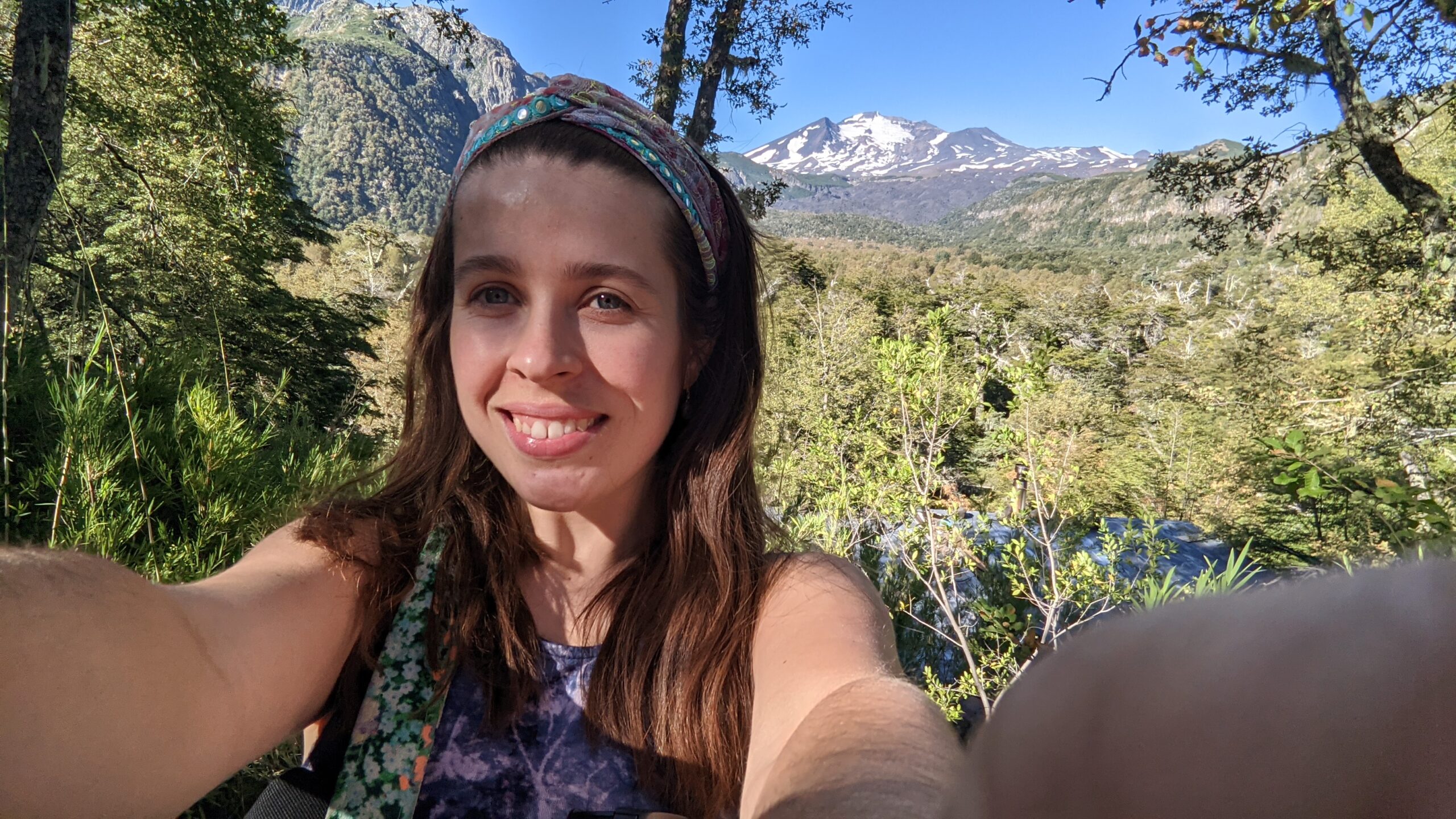
Florencia Sepulveda Trucco
Florencia Sepúlveda Trucco is a Chilean architect and landscape designer. She earned her Master of Landscape Architecture and Environmental Planning from UC Berkeley in May 2025. In her practice in Chile, she focused on creating resilient and inclusive landscapes through community-based design, bridging ecological functions and social engagement with an emphasis on nature-based solutions. Her experience spans non-profit organizations and academic collaborations, exploring how environmental planning and visual storytelling can make ecological processes accessible to diverse audiences.
She believes that water, an increasingly scarce resource, shapes both the physical landscape and the cultural identity of communities. Currently, Florencia works as a Landscape Designer at John Northmore Roberts & Associates and co-teaches LA 103: Energy, Fantasy, and Form at UC Berkeley, where she encourages students to see design as a dialogue between people, land, and water.
Contact email: [email protected]

Hannah Hansen
Hannah is a masters student in the Landscape Architecture and Environmental Planning program and is interested in hydrology, geomorphology, and multi-benefit engineering approaches for water resource management and ecosystem health. Hannah is excited by the practice of river and stream restoration, especially as related to reconsidering traditional engineering methods, such as channelization and damming, and the concept of restoration as a component of social justice through the returning of Indigenous lands. Hannah received her bachelor’s degree in civil engineering with a concentration in sustainable engineering from Barrett, the Honors College, at Arizona State University, where she was involved with the university chapter of Engineers Without Borders in developing a sustainable pipeline system for the Varoti Khurd community just outside of Pune, India. Hannah received her EIT certification and worked as a project engineer on commercial site development projects in the Bay Area for several years before beginning her graduate studies at UC Berkeley in 2021. Hannah’s current research efforts are focused on the Upper San Pedro River at the location of the US-Mexico border wall.
Contact: hannah_hansen [at] berkeley.edu
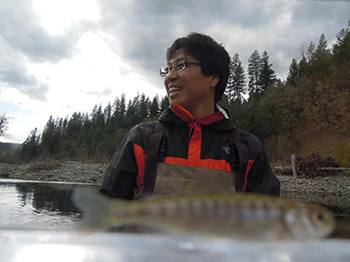
Giyoung Ock
Giyoung is a River Ecological Engineer with extensive experiences from Korea, Japan, Italy and United States in the area of ‘River / Dam Environment Management and Restoration’, specializing in (i) Assessment of Dam and Reservoir Impacts on River Channel Geomorphology and Ecological Functions, (ii) Process-based River Ecological Restoration through Integrated sediment Management and e-flow in river basin, and (iii) Habitatology of the science for structure, function and maintenance mechanisms of habitat for anadromous fishes such as salmon and Ayu fishes, and (iv) Stable isotope ecology: analyses of δ13C/ δ15N from organic matter for aquatic foodweb study, and δ18O/δ2H from water for source tracing and partitioning.
He was in Berkeley as Postdoctoral researcher from 2011 to 2013, studying a process-based river restoration for linking sediment management and ecological functions in regulated rivers below dams. He conducted a research project entitled “assessment of habitat complexity and ecological functions provided by gravel bars resulting from gravel augmentation and channel rehabilitation” in the Trinity River located in northern California, in collaboration with Trinity River Restoration Program (TRRP), funded by US Bureau of Reclamation.
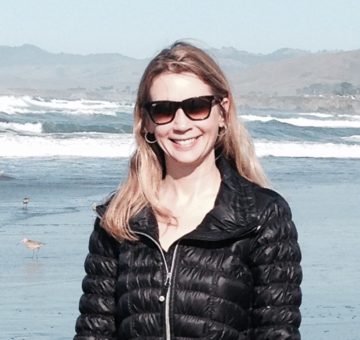
Ingrid Morken
Ingrid is a landscape architect specializing in the design of habitat restoration, park and open space, and sustainable development projects at WRA, an environmental consulting firm based in the San Francisco Bay Area. She brings a diverse background in landscape architecture, environmental planning and ecology to her work. Ingrid has led the planning and design of a variety of habitat restoration projects throughout California with the goal of enhancing biological diversity and protecting and restoring ecological processes. She also has designed park and public access projects which aim to preserve and enhance the ecological character and aesthetics of the site while providing an engaging experience for the public. As a student at UC Berkeley, she studied the ecological evolution of Sacramento River oxbow lakes and management strategies to conserve and restore these floodplain features.
Contact Email: morken AT wra-ca.com
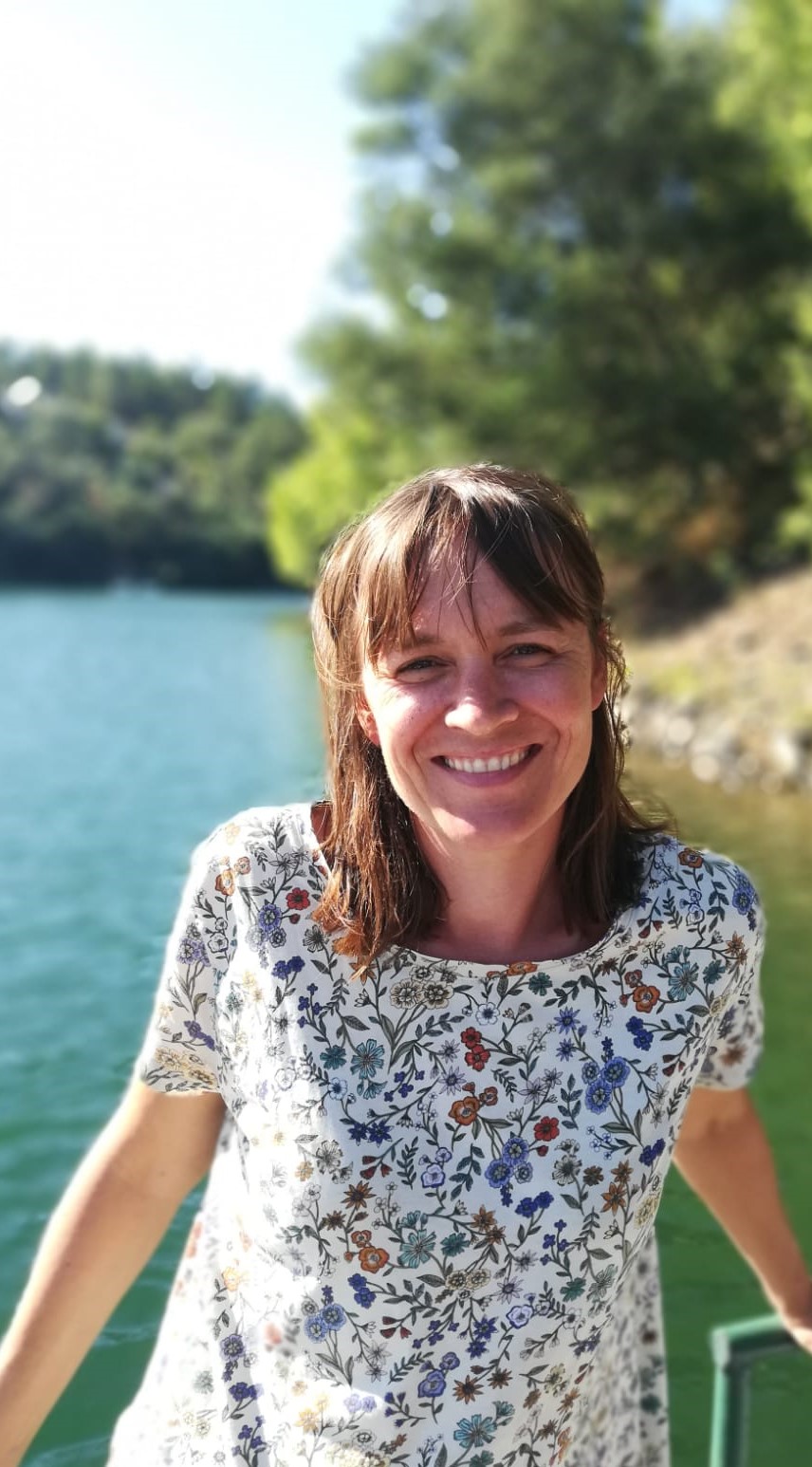
Joana Guerrin
Joana Guerrin was a researcher in political science at INRAE, the French National Research Institute for Agriculture, Food and Environment in Strasbourg (France). Her research addresses issues of governance of water-related risks such as floods and droughts. She has been specifically involved in fieldwork in France (Rhône river), Switzerland (Lausanne) and Brazil (Saõ Paulo). Currently, she is developing a research project on the environmental turn of flood management tools such as <a href=”https://www6.inrae.fr/nbs-france-us” target=”_blank” rel=”noopener”>Nature-based Solutions (NbS) in France and the U.S.</a>
She was hosted at the Berkeley Water Center and the College of Environmental Design as a Fulbright Visiting Scholar from August 2022 to June 2023. During this stay, she was analysing how US flood policies develop, institutionalize and implement Nature-based Solutions projects at Federal, State (California and Oregon) and local levels. Along with Anna Serra Llobet (CCRM) and Prof. Matt Kondolf, Joana conducted field trips and interviews with US flood actors. The analysis was be compared to flood policy in France.
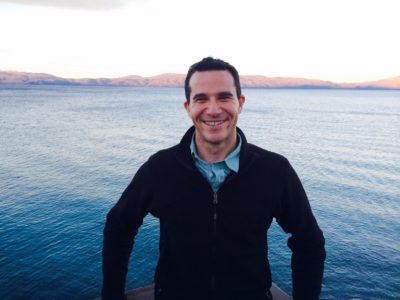
Josh Pollak
Josh Pollak, AICP, is currently an environmental planner at the Bay Area Air District, where he works on long-term air quality and greenhouse gas planning, environmental compliance, and environmental review guidelines for local jurisdictions. Prior to the Air District, he worked in private consulting evaluating the impact of large-scale and long-term land use plans and developing climate action plans. As a graduate student, his research focused on California water policy and groundwater management, and his master’s thesis analyzed conjunctive water management in the San Joaquin Basin.

Julie Beagle
Julie works as an environmental scientist in the Resilient Landscapes Program at SFEI with a focus on fluvial and tidal geomorphic processes in Bay Area streams, and wetlands, including the Sacramento-San Joaquin Delta. She leads the Delta Landscapes project which has created spatially explicit landscape metrics to provide a basis for restoration targets, and conceptual models to guide more effective subregional restoration and acquisition priorities.
She is also interested in regional adaptation planning for sea level rise, and estuarine geomorphology. By working with regional agencies, she addresses issues of head-of-tide migration with sea level rise, and shoreline change.
While at UC Berkeley, Julie focused on watershed planning and fluvial geomorphology.

Jungsub Yeom
Visiting Scholar
In 2004, Mr. Yeom started his professional career as a government officer in the Ministry of Environment, South Korea. His tasks were nationwide policies on solid waste treatment, laws & regulations on water quality, energy R&D & ministry’s whole budgetary process, public relation via on-line, etc. He also worked at WHO Western Pacific Regional Office base in Manila, Philippines for three years covering regional environmental health issues such as climate change, air quality and asbestos. Before joining the River Lab, he had worked as one of directors in “Task Force for Investigation and Assessment for Natural Recovery for Four Major Rivers”, Ministry of Environment, South Korea for one year.
More recently, Mr. Yeom has conducted research on river restoration practice and dam removal in the US. South Korea now faces tremendous challenges in determining the best way forward to restore its four major rivers impacts by dams, dikes, and massive dredging from 2009 to 2012 (the so called Four Rivers Project). In one year’s research, he wrote a report summarizing key lessons learned from US experience applicable to the rivers in South Korea and their implications for restoration of the Four Rivers Project.

Karen Jin
Master’s Candidate
Karen’s research focuses on the impact of climate change and anthropogenic activities on terrestrial and aquatic ecosystems. With an undergraduate degree in biology and statistics from Duke University, she conducted her honor thesis with Dr. Emily Bernhardt on soil microbial communities’ responses to saltwater intrusion on coastal wetlands. After graduation, she continues collaborating with researchers from the Bernhardt lab and works on analyzing microbial data to investigate the impact of mountaintop mining on stream sediment microbiomes in Central Appalachia. She also participated in a data science internship where she worked with an interdisciplinary team to analyze the impact of climate change on northern boreal lakes in Canada, which got her interested in water-related research. In her master’s study, she hopes to explore different fields of environmental studies and acquire new skills and knowledge to refine her research interests
Contact email: [email protected]
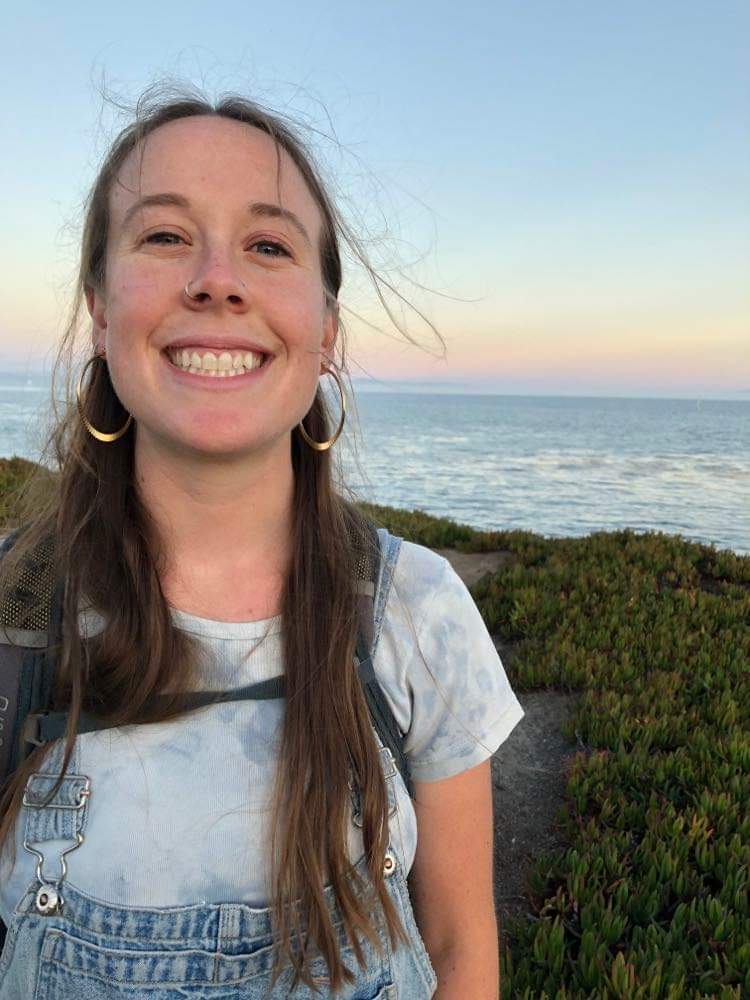
Kat Palermo
Kat is a Masters student in Landscape Architecture and Environmental Planning studying urban ecology, spatial data analysis and the socio-environmental impacts of a changing climate. Kat’s research focuses on remote sensing methods to characterize urban riparian buffers and explores urban river corridors as migratory stopover habitat for birds. Kat is passionate about environmental planning with a focus on equity and greening without gentrification. Prior to joining the MLA-EP program, Kat worked in both the public and private sector with work centered on natural resource management, project planning and GIS analysis. Kat graduated from UC Berkeley in 2017 with an undergraduate degree in Conservation and Resource Studies (Area of Interest: Conservation Biology) and a minor in Geospatial Information Science and Technology.
Contact Kat: katarinapalermo [at] gmail.com
Kat’s Work: tinyurl.com/kat-pal
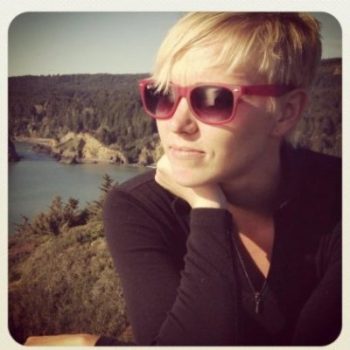
Kelly Janes
Kelly Janes is a water resource planner who specializes in collaborative watershed planning, including: flood risk management, coastal storm damage reduction, navigation, recreation, and river, wetland and coastal ecosystem restoration. Kelly is currently an Environmental Resource Specialist for the Portland District of the U.S. Army Corps of Engineers working on several projects in the Willamette Valley, including fish passage projects to address impacts to Endangered Species Act listed salmonids and native bull trout. Previously, Kelly worked for the Corps’ San Francisco District as the lead Planner on several ecosystem restoration, navigation, and flood risk management projects. Her largest projects included the Dry Creek Ecosystem Restoration Project to restore 6 miles of critical stream habitat for endangered coho salmon in Northern California as well as the Corte Madera Flood Risk Management Project located in Ross, CA. In addition to her work at the Corps, Kelly is also a co-founder and program manager for International Watershed Partners, a small non-profit organization which promote healthy watersheds by facilitating collaborative projects between young professionals and disadvantaged communities around the world. Her main interest is in how collaborative and integrated water resource planning that can accommodate and utilize natural process to create resilient ecosystems and human communities.
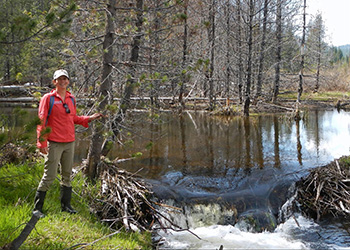
Kristen (Podolak) Wilson
Kristen works as an ecologist for The Nature Conservancy in the Sierra Nevada and Cascades. She focuses on watershed/conservation planning and monitoring the impacts of restoration projects. She uses spatially-explicit models, stakeholder-input, and cost-effectiveness in conservation planning to quantify ecosystem services and trade-offs associated with different land management and restoration scenarios. She is currently working with partners on a meadow restoration and research study (2015-2020) to evaluate the impact of beaver biomimicry and livestock grazing management on carbon, water, and habitat for two threatened species. While at U.C. Berkeley, her dissertation research addressed a variety of constructed river landscapes to understand how aesthetic, ecological, and recreational functions intersect and potentially conflict. She found that understanding the forms that people prefer—perhaps because they are beautiful—and patterns of recreational use need to be considered alongside biophysical river processes such as streamflow and channel pattern.
Contact Email: [email protected]
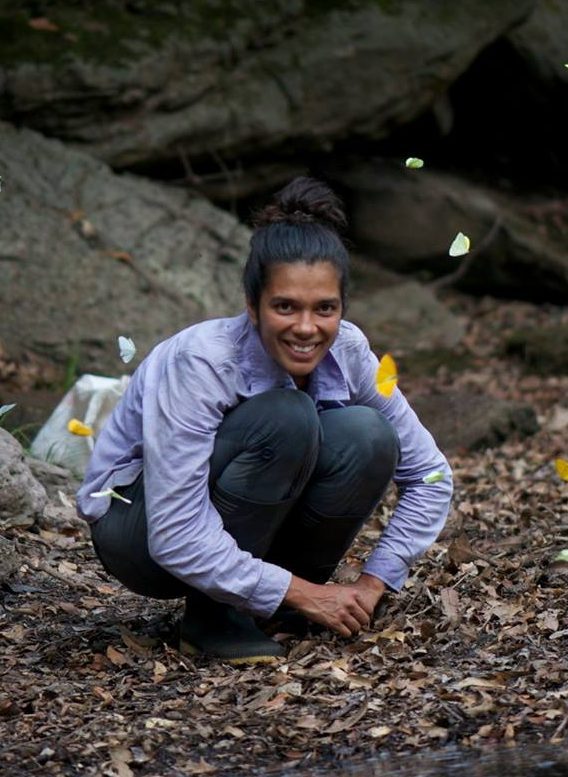
Mafe González
Master´s Student
Mafe is a botanist with a strong interest in taxonomy, ecology and conservation of tropical forests. She has participated in several research projects organized by the Institute of Natural Sciences of the National University of Colombia, Alexander von Humboldt Research Institute, Amazonian Institute of Scientific Research (SINCHI) and Chingaza National Natural Park (Colombia). She participated in research internships at the South African National Biodiversity Institute (SANBI) on participatory monitoring of endangered flora species, at Muséum National d’Histoire Naturelle (Paris) identifying the historical plant collections (Humboldt and Bonpland) of the Neotropics and at the Ulu Temburong National Park (Brunei) identifying tree species with the greatest food supply for Gibbons and Hornbills. In 2015 she completed a master’s degree in Biology, and in the fall of 2019 she began the UC Berkeley Master of Landscape Architecture and Environmental Planning. In her master’s degree, she hopes to learn new tools to strengthen conservation strategies in tropical ecosystems.
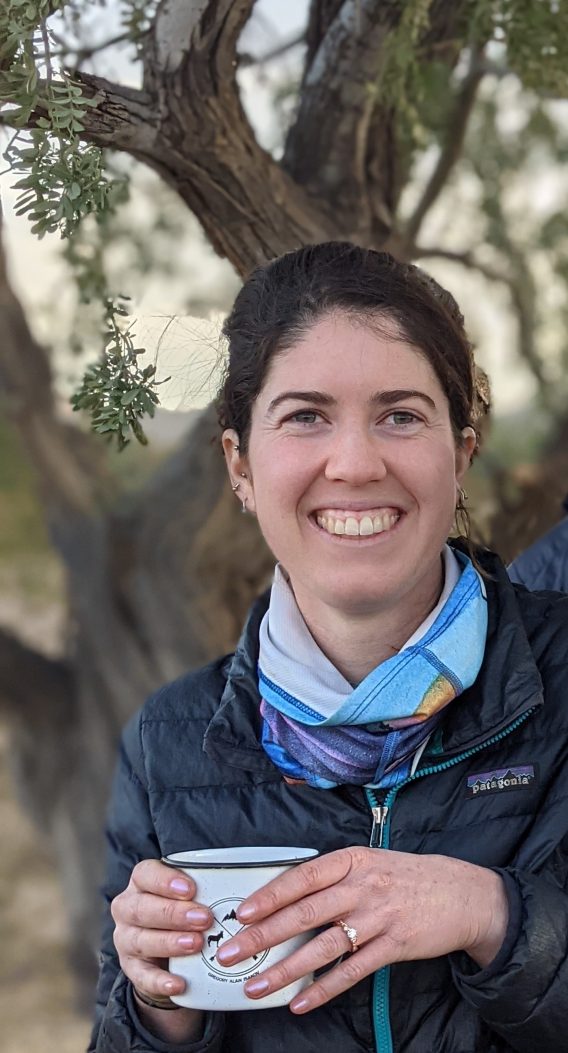
Maggie Shepherd Farley
Maggie is a master’s in Landscape Architecture and Environmental Planning program studying planning for wildfire and post-fire debris flows. Her research uses geospatial analysis, remote sensed vegetation models, and fire modeling to assess these landscape hazards. Maggie’s work includes considering watershed scale wildfire hazard in Sonoma county to determine potential debris flow impact on infrastructure and assessing post-fire debris flood morphology of Big Creek. Prior to UC Berkeley, Maggie analyzed soil and plant samples from post-fire rangeland sites in Valerie Eviner’s ecology lab at UC Davis. She graduated from Vassar College with a bachelor’s in biology in 2016.
Contact: mshep [at] berkeley.edu
Portfolio website: maggieshepherdfarley.com
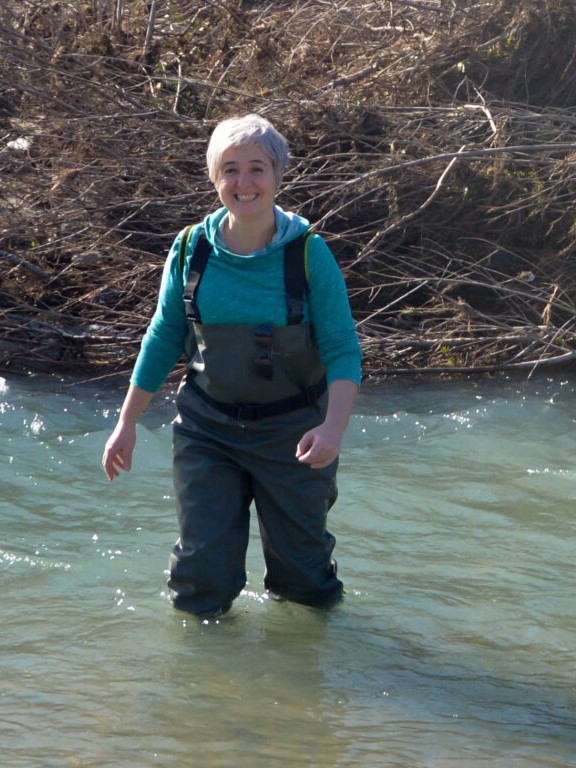
Maria Nicolina Papa
Visiting Scholar
Maria Nicolina Papa is an environmental engineer and professor of hydraulic engineering and river management at the University of Salerno (Italy). Her research interests are in river management. She has worked on flood risk mitigation and debris flows. More recently she has been interested in the restoration of the hydro-morphological quality of rivers to defend ecosystems and biodiversity. To monitor the hydro-morphological evolution of rivers, she has developed satellite observation techniques. In particular, she has collaborated in developing techniques for automatic classification of different land covers (vegetation, sediment, water) and for describing the hydrological regime in ungauged intermittent rivers.

Marina Stern
Marina is a masters student in the Landscape Architecture & Environmental Planning program. Her research interests include planning and designing for habitat restoration and wildlife conservation along shorelines and in wetlands. She aims to work within social contexts and toward equitable outcomes. Currently, her research includes developing a vulnerability analysis of West Maui’s shoreline, involving infrastructure, tourism development, social factors, and Endangered Monk Seal habitat. She will also be working toward compiling ecotourism design suggestions and plans for migratory bird conservation in South Korea’s Hwaseong wetlands. She has previously worked with the Town of Greenburgh to organize support for a Solar Overlay District as well as in environmental education in the Rivertowns of New York. She graduated with B.A. degrees in Environmental Planning, Geography, and Graphic Design from Binghamton University.
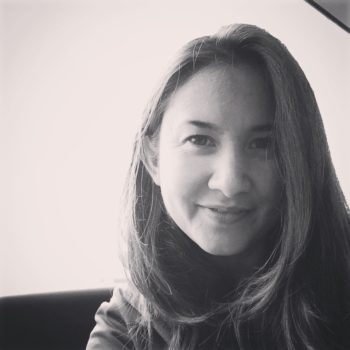
Mia van Docto
Mia works as a Conservation Hydrologist for Trout Unlimited. Her work focuses on coastal hydrology, ecological flow thresholds, conservation planning, coho salmon and steelhead trout recovery and translating findings into recovery prioritization actions and regional polices. She specializes in using a combination of field-based data, numerical modeling and geospatial tools to characterize hydrologic process, land-use and human water needs.
While at UC Berkeley, Mia focused on fluvial geomorphology, river restoration and conservation planning. Publications
Contact Email: mvandocto AT tu.org

Noelle Hayward
Undergraduate Student
Noelle is an undergraduate pursuing a degree in both Landscape Architecture and Conservation Resource studies. As a previous Judith Lee Travel Scholarship recipient, she studied regenerative bamboo construction and permaculture management in Indonesia. She also worked in an permaculture garden in Berlin, aiming to localize food production in the most urban environments. She is currently enrolled in LA227: River Restoration to delve into her ecological reconciliation interests associated with rivers, floodplains and estuaries.
Contact Email: [email protected]
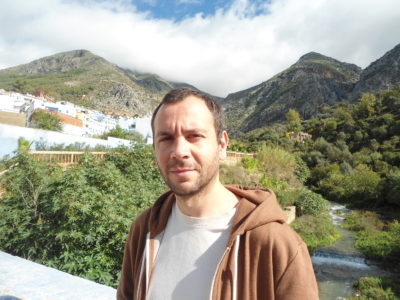
Pedro Pinto
Pedro completed his Ph.D. in Landscape Architecture and Environmental Planning at UC Berkeley. He now works as an urban planner and post-doc researcher at the University of Lisbon. He has studied the relationship between cities and rivers, including studies over the evolution of urban river fronts and issues of connectivity, combining environmental and social/urban perspectives.
While at U.C. Berkeley, his PhD dissertation research focused on the impacts of sea-level rise over urbanized estuaries. With case-studies such as the San Francisco Bay and the Tagus Estuary at Lisbon, Portugal, his research produced coastal flooding maps and an historical analysis of the occupation of estuarine lowlands in both regions. Through historical map and document analysis, he identified possible triggers and factors that could explain the differences. He also compared current environmental governance frameworks were equally compared, and highlighted possible constraints to future adaptation efforts in Lisbon and San Francisco.
Besides his PhD in Landscape Architecture and Environmental Planning, with Matt Kondolf as Chair, he has an MSc in Urban Science and Management from the University of Lisbon.
Publications:
Batista e Silva, J.; Pinto, P. (2010): “As Cidades Fluviais de Portugal Continental. Métricas, tipologias e alguns dilemas segundo a leitura RiProCity” in Saraiva, M.G. (coord.): Cidades e Rios – Perspectivas para uma relação sustentável. Parque Expo S.A., Lisbon, Portugal. (In Portuguese)
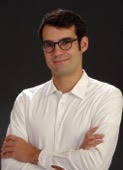
Rafael Schmitt
Rafael Schmitt is an assistant professor in Environmental Sciences at UC Santa Barbara. Rafael was a visiting scholar at UC Berkeley as he obtained his Ph.D. in Computer Science at the Technical University of Milan. His research focused on network-scale sediment connectivity modeling. During his period as visiting scholar at UC Berkeley, Rafael developed a sediment transport model for large tributaries of the Mekong. He applied that model to explore optimal configurations of dams sites that maximize hydropower production while minimizing cumulative sediment trapping in these rivers. Before his Ph.D. Rafael received a M.Sc. in Environmental Engineering and a B.Sc. in Environmental Science (both from ETH Zurich) and worked on river morphology and water resources management and engineering in various sectors and geographic settings.

Ricardo da Cruz e Sousa
Ricardo is a professor at the Architecture and Urbanism School of the Universidad Tecnológica Equinoccial in Quito, Ecuador. Ricardo’s research interest lie in reducing natural disasters and improving environmental quality in Latin American cities by involving communities in restoring their ecosystems. He is a landscape architect originally from Lisbon, Portugal. Ricardo started his career working as a designer in several offices in Portugal and later as an independent consultant. In 2010, Ricardo was awarded the PSP Pinto-Fialon Fellowship and started a graduate program under the supervision of Prof. Matt Kondolf at the Landscape Architecture & Environmental Planning Department at UC Berkeley. Ricardo focused on river restoration, green infrastructure and other water related topics. His masters thesis was a pilot project to restore a creek in the city of Quito, Ecuador, through the implementation of green infrastructure. Since then, Ricardo has moved to Ecuador, where he worked as a consultant and taught at different universities in Quito, Cuenca and Guayaquil. He also co-founded the environmental non-profit, International Watershed Partners (IWP), whose mission is to facilitate on the ground projects for disadvantaged communities (particularly in developing countries) to solve environmental problems in their watersheds. IWP does this by connecting local stakeholders with graduate students and young professionals who are working on environmental planning and watershed issues.
Contact Email: [email protected]
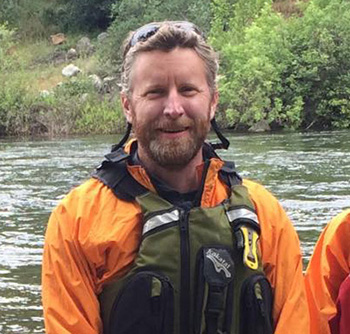
Rich Walkling
Rich Walkling currently serves as an appointed member of the East Bay Regional Park District Park Advisory Committee, board chair of Urban Tilth in Richmond, vice president of the Golden Gate Audubon Society, and board member of Citizens for East Shore Parks. He graduated with a focus on watershed planning and creek restoration. While at Cal, he was hired for the summer to work at the CALFED Bay Delta Program by a recent LAEP graduate. He was also hired for his first job out of graduate school by another recent graduate of the program. Since 2008, he has worked as a restoration planner and CFO of Restoration Design Group – a landscape architecture design firm focused on creek restoration and open space design. Rich has managed watershed and estuarine projects in California, the Great Lakes basin, and southern Africa. His environmental and community planning work has been featured in a documentary at the Oakland Museum of California.
Contact Email: [email protected]
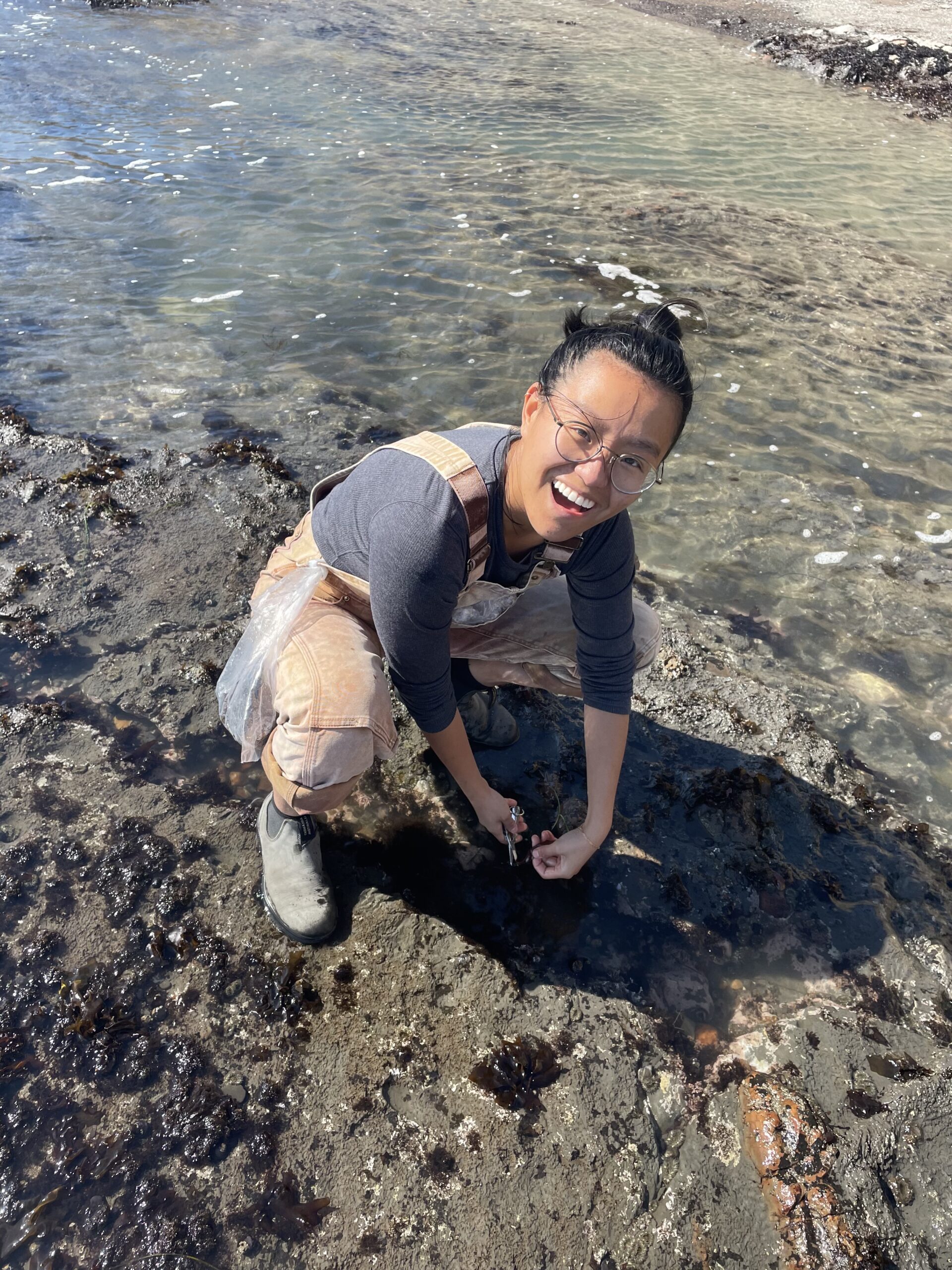
Ruby Zalduondo
Ruby is a recent graduate of the Masters of Landscape Architecture and Environmental Planning and Masters of City and Regional Planning Programs. Her research is focused on the social, ecological, and technological implications of renewable energy infrastructure deployment. She is currently a Public Utilities Regulatory Analyst with the California Public Utilities Commission in San Francisco. On the side, Ruby splits her time between the docks and the market — working as a deckhand on a small San Francisco fishing boat and as a fishmonger, selling local, hook-and-line caught seafood.
Contact email: [email protected]
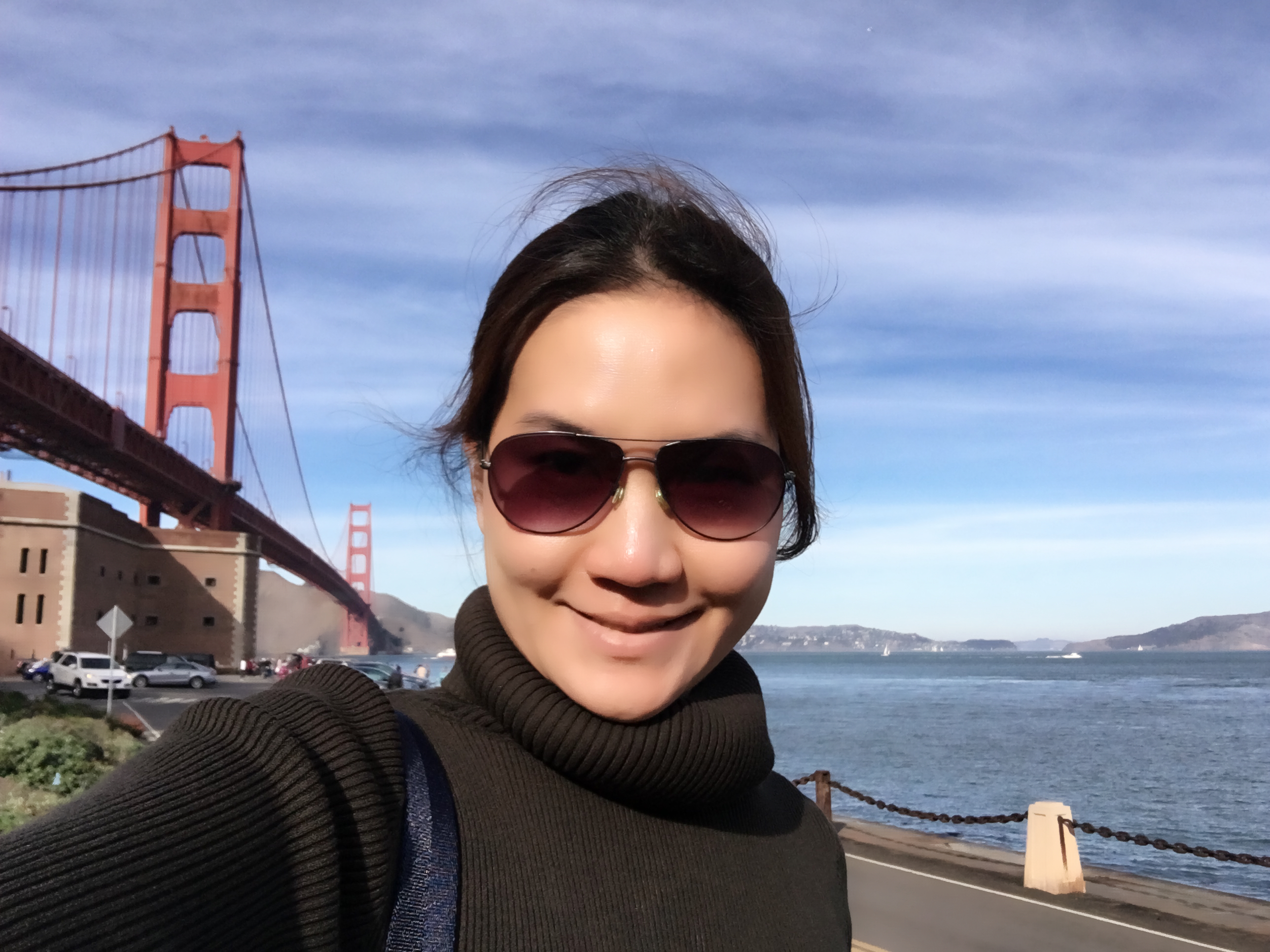
Sandra Lee
Dr. Sandra Lee is an environmental planner with PhD from Tsinghua University and MSc from Wageningen University. She has conducted interdisciplinary research on sustainable management of water across Europe and Asia, notably in eastern China (e.g., water resource and environmental planning, costal lowland revitalization planning and design, rural-urban ecological planning, climate-resilient urban design, community participatory planning and design). Sandra was a visiting scholar at River Lab from 2020-2022.
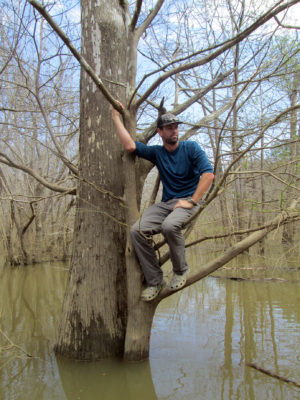
Scott Walls
Scott founded walls land+water shortly after completing his graduate degree at UC Berkeley. He provides a broad array of services related to watershed science, planning, and design. His specialties range from hydro/geomorphological data collection and analysis, multi-benefit restoration design, advance remote sensing and GIS, to using drones to collect high-resolution models of fluvial landscapes. His work have taken to places such a Florida, Nicaragua, Ecuador, and Chile, as well as throughout California. He is also a project manager of the environmental non-profit, International Watershed Partners (IWP), whose mission is to facilitate on the ground projects for disadvantaged communities (particularly in developing countries) to solve environmental problems in their watersheds. IWP was founded by a group of Riverlab alumni.
Contact Email: scott AT wallslandwater.com | wallslandwater.com | iwpartners.org
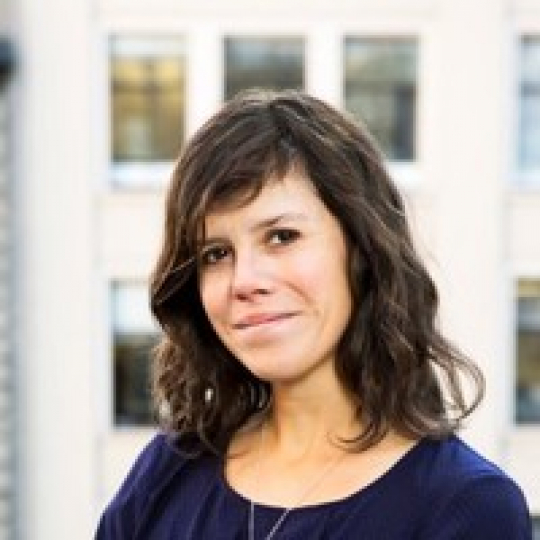
Shannon Fiala
Shannon is currently a coastal planner with the California Coastal Commission, where she assists local governments in updating their land use plans and zoning codes to require coastal development to avoid, minimize and mitigate the risks from sea level rise while protecting coastal resources, including ecosystems, public recreation, and agriculture. Shannon has over ten years of environmental planning experience in the public, private, and non-profit sectors in the San Francisco Bay Area at organizations such as the Marin Municipal Water District, Napa County Resource Conservation District, NRM Environmental Consulting, Urban Land Institute and SPUR, a non-profit urban policy think tank, where she was Deputy Project Manager for the Ocean Beach Master Plan and subsequent implementation studies. Shannon also has a BS in ecology from the University of Michigan.
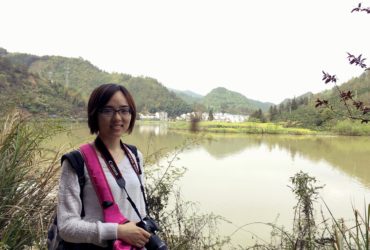
Shuhan Shi
Shuhan is an assistant professor at Beijing Sports University. She received her PhD in Human Geography at Peking University in China. As a visiting student researcher at UC Berkeley, she studied practical methods and social aspects of river restoration, including contradictions between ecological targets and people using NGO activities. She focused on traditional water management in the Huizhou Area, such as how traditional irrigated facilities or methods reduce the flood and drought risks, and the application of this in contemporary contexts.
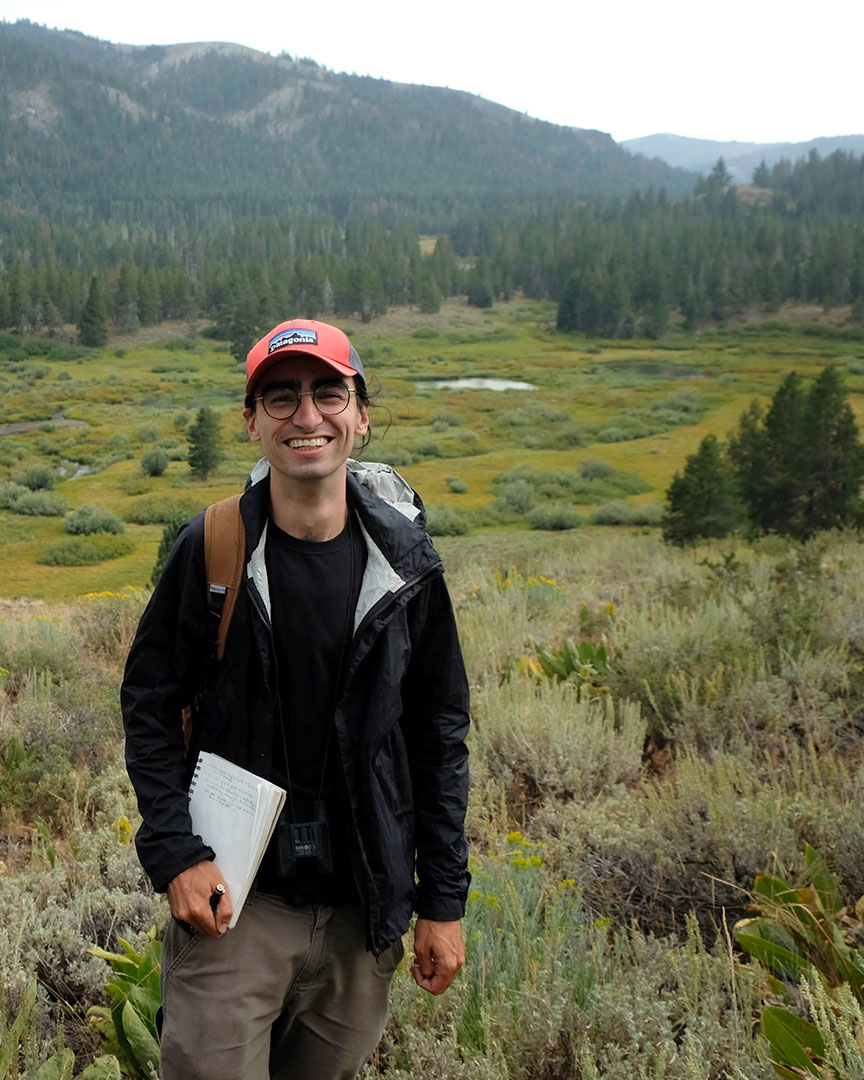
Skyler Lewis
Skyler Lewis is a masters student specializing in geospatial data science and remote sensing applications for watershed management, ecohydrology and fluvial geomorphology. He is particularly interested in the restoration of California’s inland riparian, floodplain forest, and estuarine wetland ecosystems, especially those in built-up and urbanizing watersheds. Skyler has worked on projects including the long-term post-restoration monitoring of Tassajara Creek (Dublin, Calif.) riparian vegetation and channel morphology, and also worked with the PPIC Water Policy Center on San Joaquin Valley groundwater monitoring and prediction based on climate and stream discharge data. Skyler received a bachelor’s degree in Environmental Analysis from Pomona College in Claremont, California, focusing on environmental economics and spatial statistics, and worked for several years as a business data analyst before pursuing a concurrent master’s degree between Landscape Architecture & Environmental Planning (MLA-EP) and City & Regional Planning (MCP).
Contact email: skylerlewis [at] berkeley.edu
Portfolio website: www.skylerlewis.com
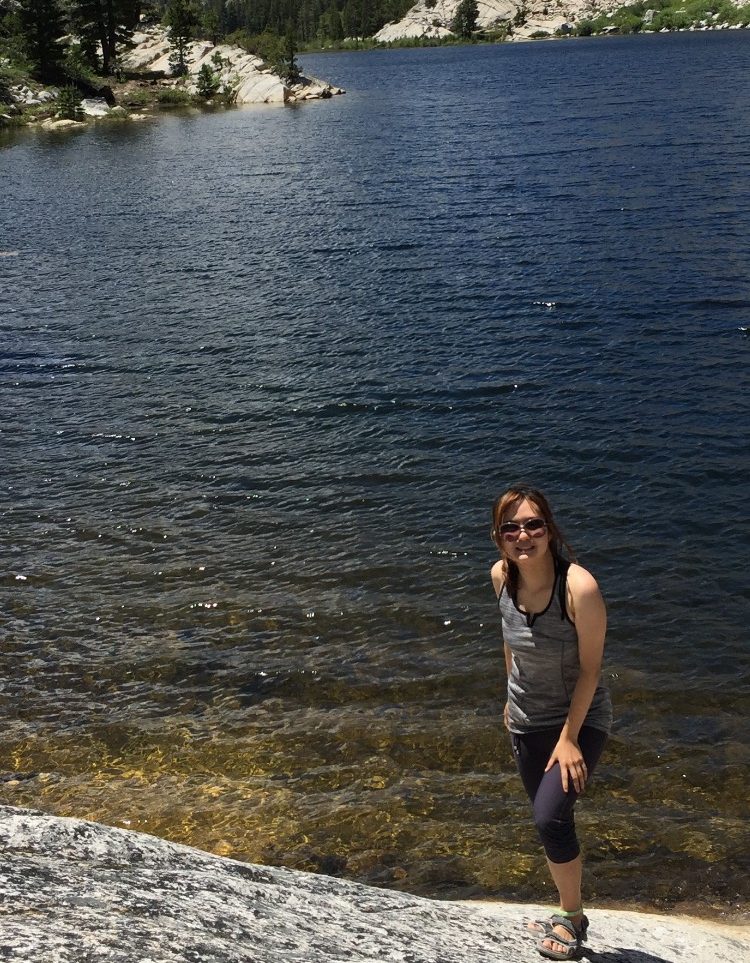
Sooyeon Yi
Sooyeon Yi’s research is focused on the water-energy nexus in the Southwestern US and China. Specifically, she is looking at regional impacts of policies to manage groundwater and restrict State Water Project exports and energy implications of changes to groundwater, hydropower, and reservoir operations in Northern California that might result from reduced exports to Southern California. She is also conducting a comparative study of energy demands of long-distance water transfer projects in California, China, India and Spain, to shed light on environmental and economic conflicts surrounding these projects. She is working with the China Energy Group at Lawrence Berkeley National Laboratory. Sooyeon received her B.S. and M.S. in Hydrology from University of California, Davis.
Contact email: sooyeon AT berkeley.edu, sooyeon AT lbl.gov

Spencer Lacy
Master’s Student
Spencer is a master’s student in Berkeley’s environmental engineering department. With a river-centric upbringing, Spencer has been studying fluvial systems, river hydraulics, and hydrology since he could hold a paddle in his hands. His life revolves around the river; being in it, bringing it into people’s lives, protecting and restoring it, and making it accessible and enjoyable for all. Spencer’s research interests lie in human interaction with rivers and the benefits it can lead to as well as ubiquitous low-head dams and the immediate public safety hazard that they present. Before coming to Berkeley, Spencer worked in Colorado as a design engineer and project manager designing whitewater parks, river waves, in-stream and bank restoration, dam modification, and greenways that connect communities to their river corridors. Spencer is also a passionate and accomplished whitewater athlete.
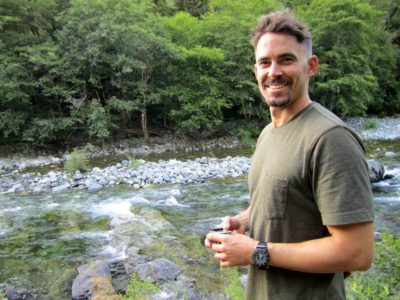
Stephen Pye
Steve Pye recently graduated from the MLAEP program at UC Berkeley. Before coming to Berkeley’s Environmental Planning MLA program, Steve received a BA in Environmental Studies and Planning from Sonoma State University, and began working for Dragonfly Stream Enhancement, a small firm specializing in salmonid habitat restoration, including large woody debris installation, stream bank stabilization, grading, and riparian plantings. He gained experience in project management, heavy equipment operation, and communicating effectively with contractors, customers, and project managers from government and nonprofit entities. In early 2015, he began part-time with the Sonoma Land Trust (SLT) working at Sears Point, where SLT completed a 1,000-acre tidal marsh restoration project.
Steve’s masters thesis focused on how to update the Sears Point management plan, especially as it applies to the gullied upland areas.

Tami Church
Tami works for the Zone 7 Water Agency which covers water supply, flood control, and groundwater management for eastern Alameda County. As Water Resources Planner in the Integrated Planning section she is able to apply her professional and educational experiences to on-the-ground projects at the multiple planning scales— site-, watershed-, and regional-scale. Her day-to-day responsibilities vary from project management and stakeholder coordination, to biological surveys and restoration monitoring. She is currently working on two major projects—an update to our Stream Management Master Plan, and program administration for a multi-agency public engagement program called Living Arroyos.
Tami’s professional experiences prior to graduate school taught her that identifying and understanding the mechanisms that promote ecosystem integrity is critical for effective and sustainable resource planning. As a graduate student, she focused her coursework and research on watershed planning especially with regard to riparian ecology. Her thesis analyzed a large pre-existing dataset on the use of large wood placement to enhance stream complexity.
Her professional interests are to produce and interpret scientific data, to make informed land-use decisions that minimize environmental impacts, improve habitats for native flora and fauna, and promote sustainable, supported resource planning. She enjoys connecting with prospective students as well as alums to discuss the program or other water resources related issues.
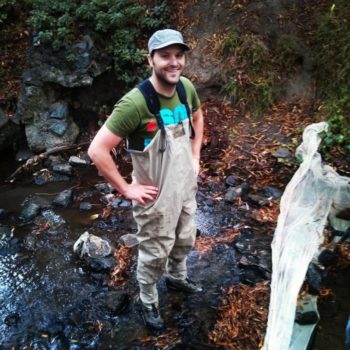
Ted Grantham
Ted is a cooperative extension specialist and adjunct professor in the Department of Environmental Science, Policy, and Management (ESPM) at U.C. Berkeley. His research integrates freshwater ecology, hydrology, and water resources engineering to inform sustainable, cost-effective practices and policies for managing water in California. Core research and extension interests include environmental flow science, conservation planning, and climate risk assessment. He is also involved in education and is launching the UC Water Academy in 2017, a two-week field course for undergraduate students designed to train the next generation of water leaders in California.
Ted has been involved in freshwater science and applied environmental research since 2000. Before starting his current position at Berkeley, he was a research biologist with the U.S. Geological Survey and a postdoctoral researcher at the U.C. Davis Center for Watershed Sciences. He received his PhD at U.C. Berkeley (ESPM) in 2010.
Contact Email: tgrantham AT berkeley.edu

Ting Da
Visiting Scholar
Ting’s research involves the social functions and social connections of urban waterfronts. Specially, she is analyzing the social impacts of urban waterfront redevelopment projects in China.Her current research focuses on the social connectivity of urban waterfront parks along the Yangtze River. Ting is now teaching in school of Landscape Architecture, Beijing Forestry University, as an associate professor. As an architect and urban planner, she has designed some waterfront and wetland parks in China. Ting got her M.E. of urban planning in Southeast University, China and Ph.D of Landscape Architecture in Beijing Forestry University, China.

Tyler Nodine
Master’s Student
A Master’s Student in RiverLab, Tyler is interested in relationships between physical processes and ecological function at landscape and watershed scales. His current research focuses on the habitat impacts of dams in the Columbia basin to inform management alternatives for the Columbia River Treaty, a transboundary water agreement between the U.S. and Canada. Tyler’s interests encompass ecological restoration, floodplain connectivity, salmon ecology, remote sensing and spatial analysis. Tyler received a B.Sc. in Ecology and Evolutionary Biology from UC Santa Cruz and has worked in watershed restoration, invasive plant control, ornithology and fisheries. Before graduate school he worked for NOAA Fisheries in Seattle, WA assessing salmon habitat capacity and restoration potential in the Columbia River basin.
Contact Email: tnodine AT berkeley.edu
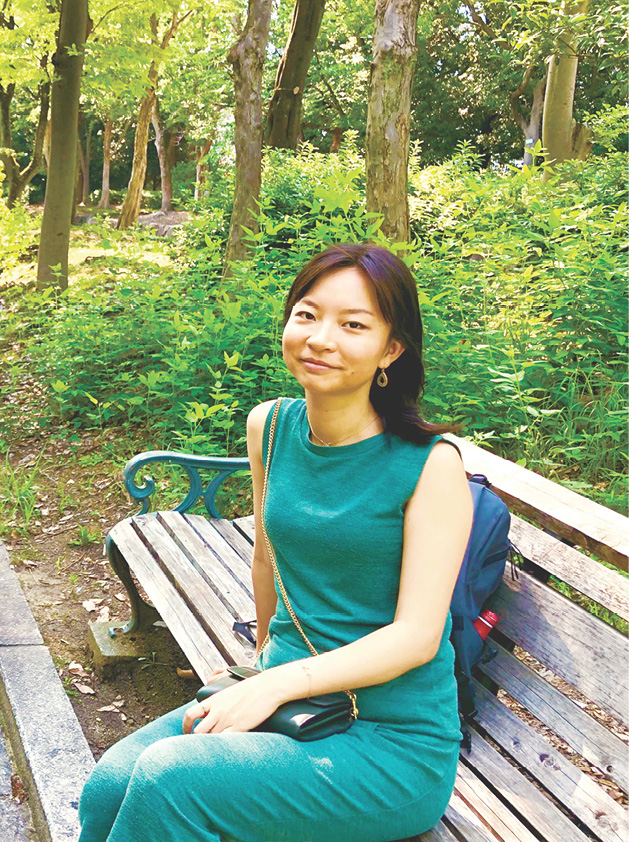
Vanessa Lee
Vanessa received her MLA from Berkeley, exploring climate-related adaptation policies and design in coastal cities internationally. Her current focus is on designing with typhoons in her home town, Hong Kong, using process-based and multi-scalar approaches. She works across the fields of environmental modeling, city planning for racial justice and equity, and landscape master planning and site design. Her parallel research on the planning side delves into the relations of historic radicalization and heat vulnerability in Richmond, Virginia. Before coming to Berkeley, she was a landscape designer and her favourite project is landscape restoration of landfills in Hong Kong, aimed at transforming bays reclaimed by landfills into native woodlands.
Contact email: vanessa_lee AT berkeley.edu
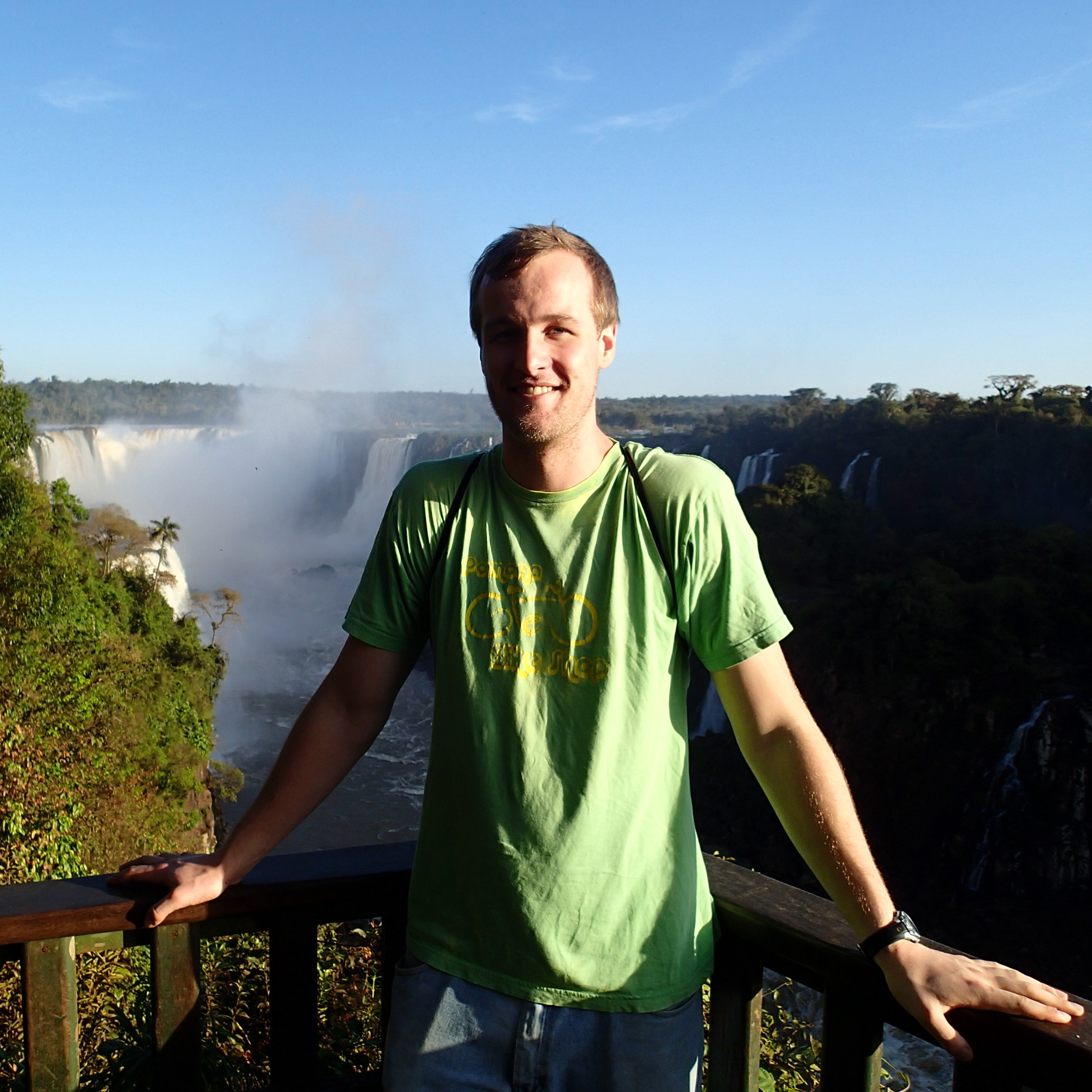
Will Pitkin
Will Pitkin received a Masters in Environmental Planning from UC Berkeley. Will’s research focused on climate change adaptation, flood management policy, and financial incentives for responsible land use, seeking solutions that reduce flood risk, enhance habitat and water quality, and support outdoor recreation. He emphasized big-picture thinking and expressing complex issues in simple ways. Will has worked as a Lake Monitor on two lakes in Vermont and interned at an environmental law firm in Buenos Aires, a wind energy developer in Vermont, and a winery lab in Napa Valley. After receiving a BA in Environmental Analysis from Pomona College, he did a Fulbright Grant in Curitiba, Brazil and spent three years as a private investigator in San Francisco.

Yinjun Zhao
Yinjun is interested in interdisciplinary research among river system, spatial modeling, GIS and RS to understand the differences of river types. Currently, he proposed a new decision classifier (DCF) to classify rivers for Chinese river management based on existing classification systems. Aimed at river function management, the DCF with the five-layers frame was developed on reach level in a spatially nested pattern that from top to bottom are natural province, basin, valley, reach, habitat and microhabitat. Finally, he is developing software to automate the classification process to promote DCF application.
Contact Email: crpp0104 AT berkeley.edu

Yuka Muto
Yuka’s research focused on the interaction between human activity and the environment within river basins. Her main research topic is the characteristics of the forestry situation such as systems and the scale of forestry operation in different regions and how that affect the environment of river basins in Japan. She analyzes the relationship focusing mainly on the geological and topographical differences of river basins. She is also concerned with research topics such as the population trend around frequently flooded areas, and assessment of the impacts of both climate change and land use change to the water environment.
Yuka received her B.S. and M.S. in Civil Engineering from University of Tokyo, Japan, and is now a PhD student at the same department.
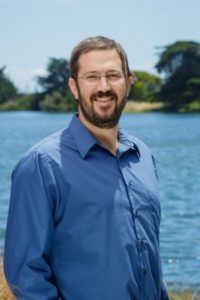
Zan Rubin
Zan Rubin works as Senior Geomorphologist/Hydrologist at Balance Hydrologics in Berkeley where he conducts studies of sediment transport, water quality, channel evolution, and riparian ecosystems, performs watershed assessments, and designs stream and wetland restoration projects. He received his PhD with Professor Kondolf and continues to work in the lab on several projects including the cumulative impacts of hydropower development in the Mekong basin, and evaluating the effectiveness of riparian restoration along the lower Colorado River.
Contact Email:zrubin AT balancehydro.com

Zhaohui Yang
Dr. Zhaohui Yang is a professional engineer with the China Institute of Water Resources and Hydropower Research (IWHR). She has played a key role in water conservation planning for Chengdu and Anyang City, and in water resources planning for Ningxia Autonomous Region , Xiamen City and Jinan City. She has assessed supply and demand for water resources in areas affected by water transfers (an increasingly important topic in China with the large south-to-north transfers being implemented). Zhaohui has published 8 monographs and over 30 scientific papers. During her stay as a visiting scholar with Riverlab, Zhaohui is researching river restoration projects undertaken in several Chinese cities, highlighting the ecological aspects of the projects, which are often neglected in project planning and implementation.
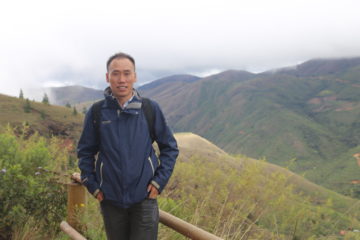
Zhong He
Zhong He is associate professor in the Institute of Soil and Water Conservation, Chinese Academy of Sciences. He focuses on water and soil conservation measures in the Chinese Loess Plateau and their effects on runoff-sediment variation, riparian and estuary geomorphology of the Yellow River, as well as soil erosion environment variation and its dynamic mechanism in the Chinese Loess Plateau during the geological time scales.
Contact Email: hezhongcn AT gmail.com